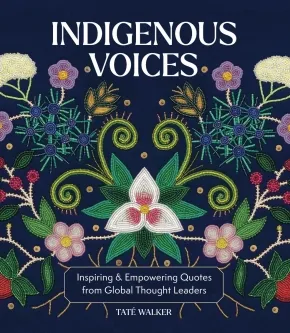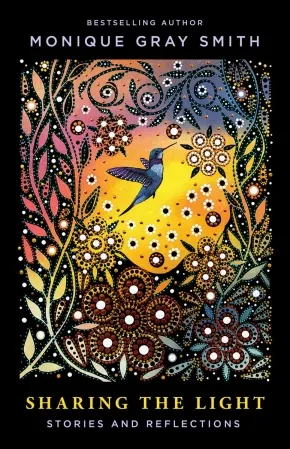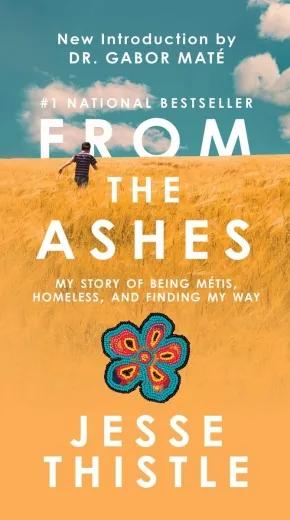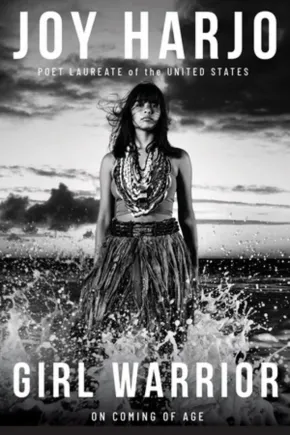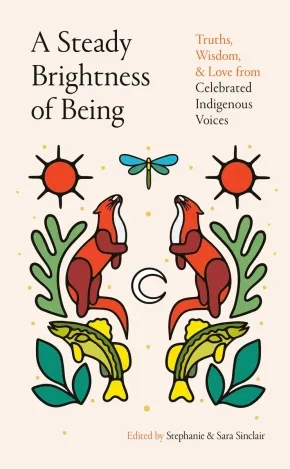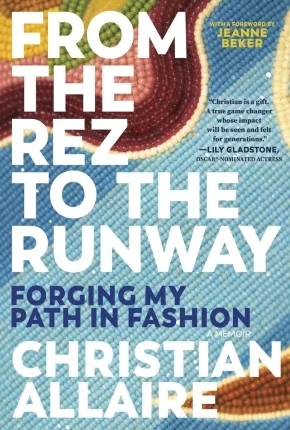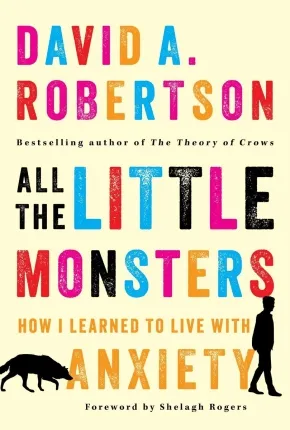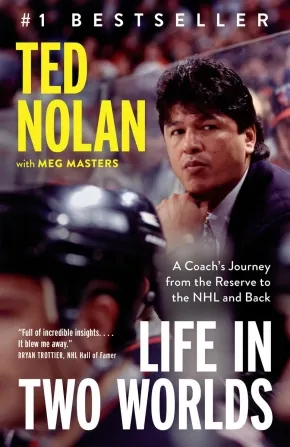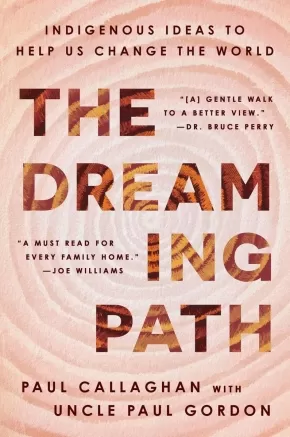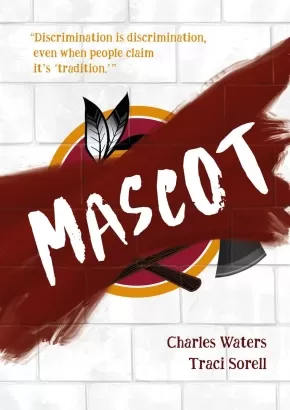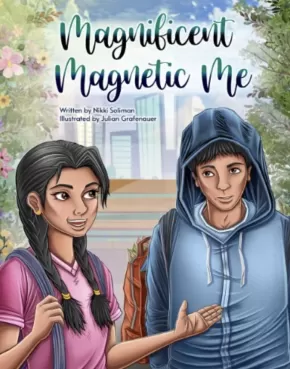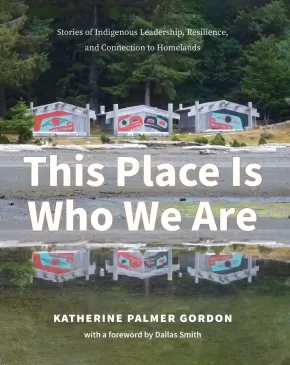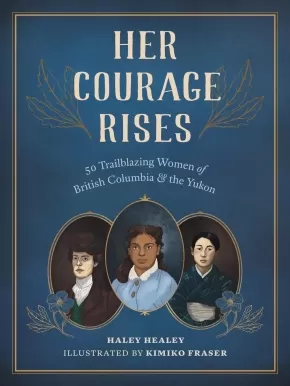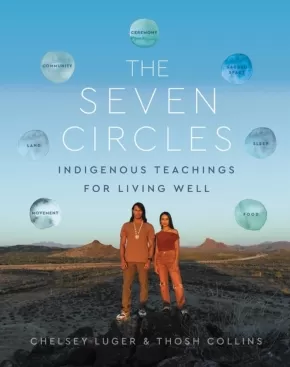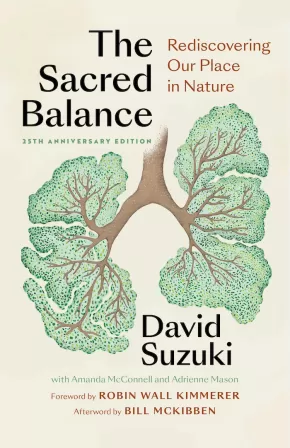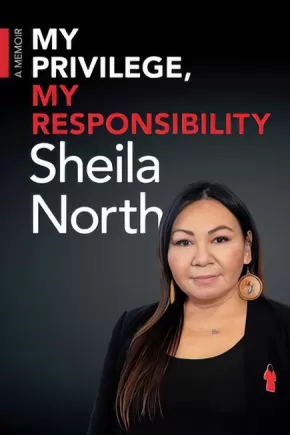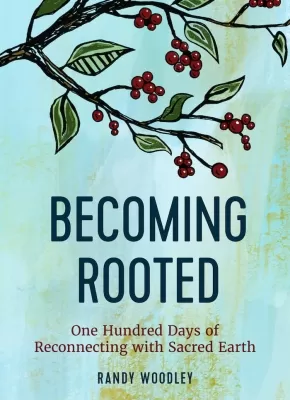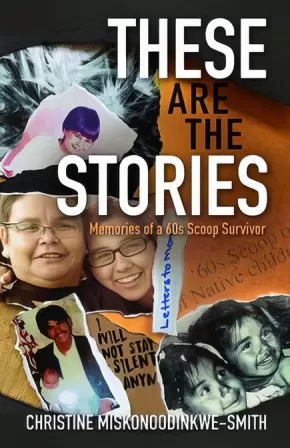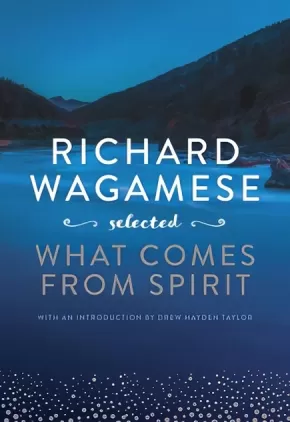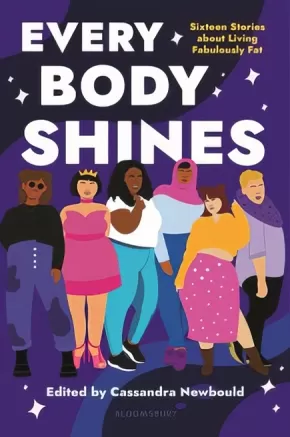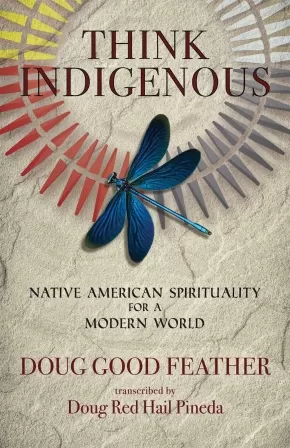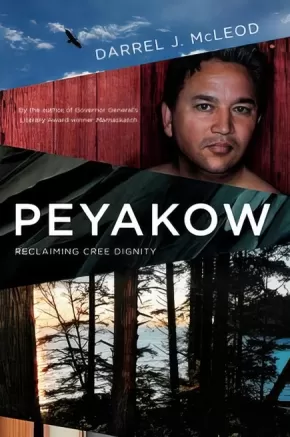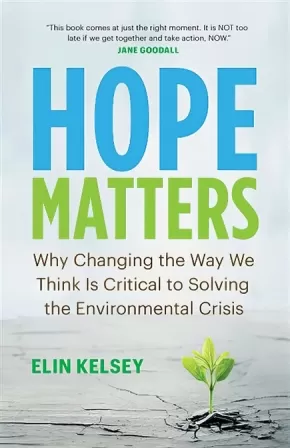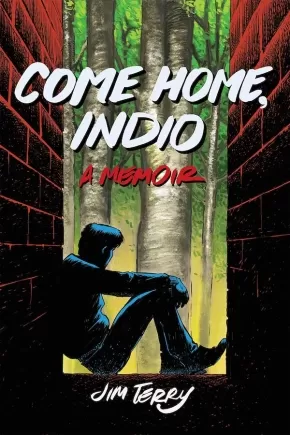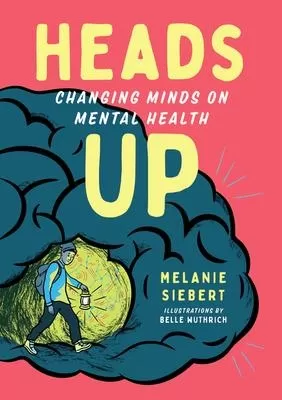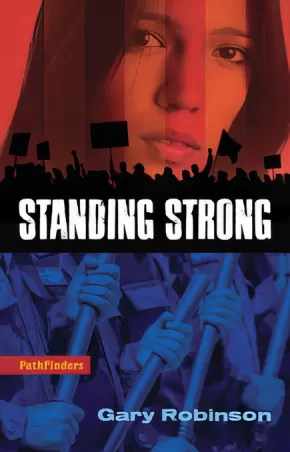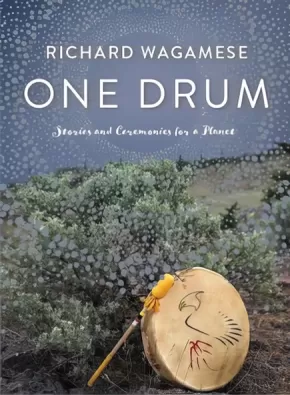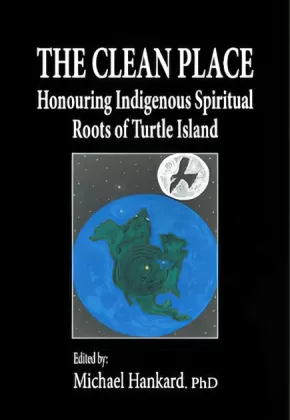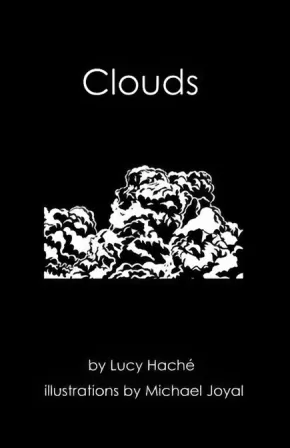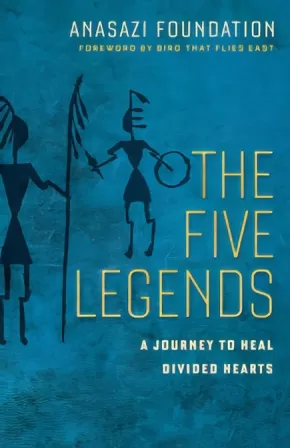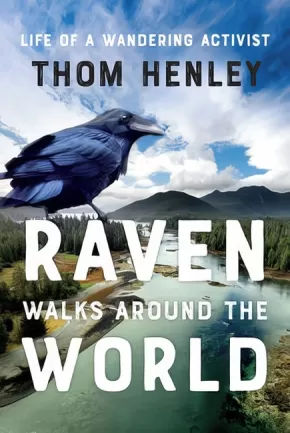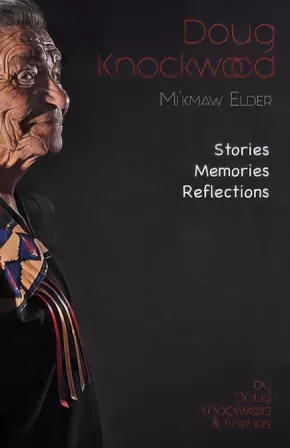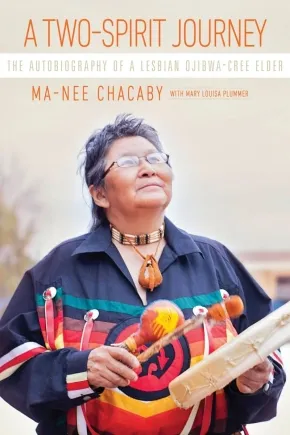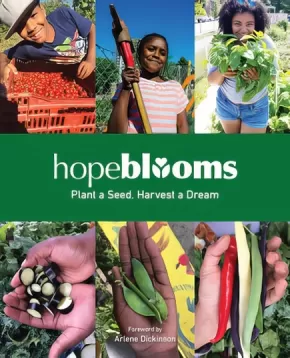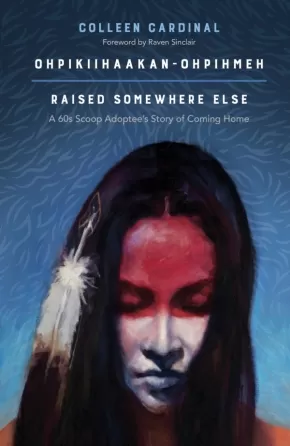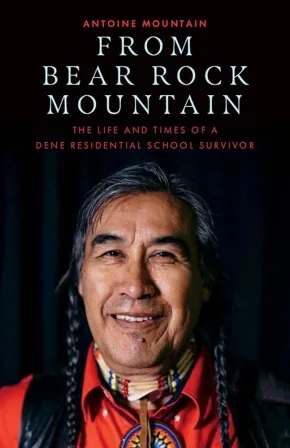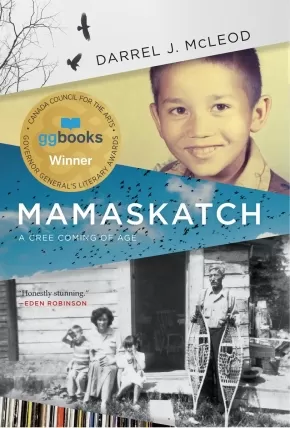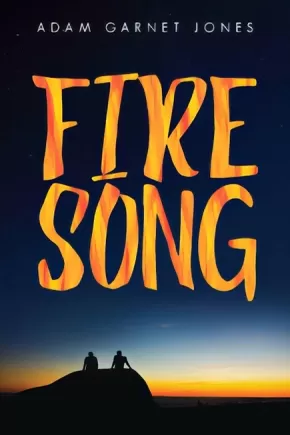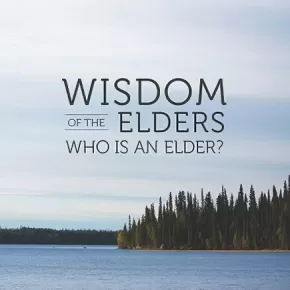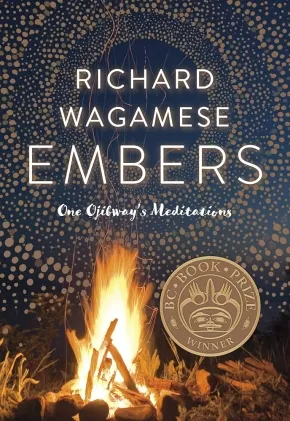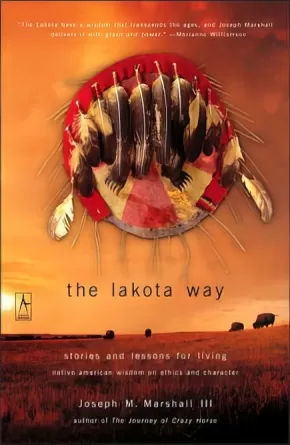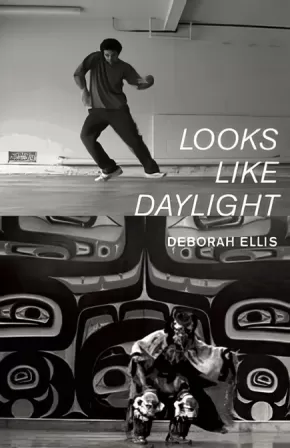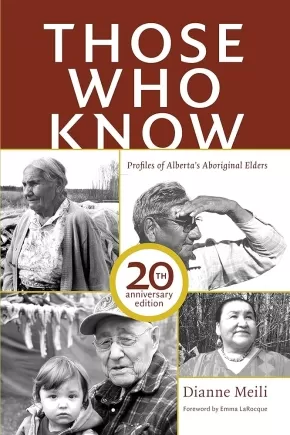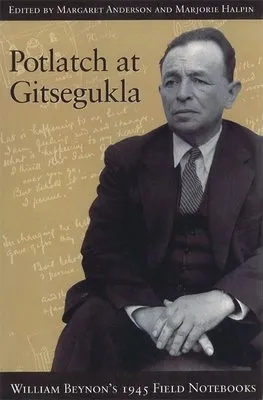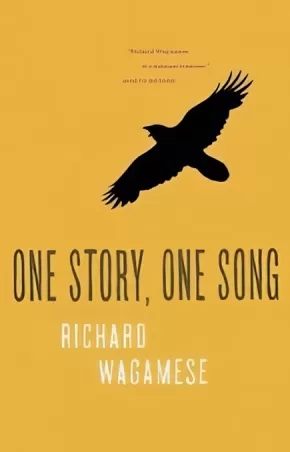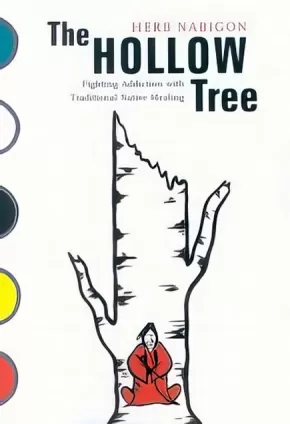
Stories of Inspiration
1
-
15
of
50 Results;
Sort By
Go To
of 4
Indigenous Voices: Inspiring & Empowering Quotes from Global Thought Leaders
$25.99
Format:
Hardcover
Text Content Territories:
Indigenous Canadian; Indigenous American; Indigenous South American;
Reading Level: N/A
ISBN / Barcode: 9781577154914
Synopsis:
Synopsis:
Immerse yourself in Indigenous Voices, an inspiring volume of quotations by Indigenous thought leaders, activists, politicians, and scholars illustrated with stunning artwork by Indigenous artists.
This captivating book weaves together the timeless wisdom of Indigenous people from various nations and regions through a mosaic of more than 60 quotes, words, and stories by elders, leaders, activists, scholars, and influential contemporaries spanning all walks of life. Discover the diverse and unique heritage of extraordinary people like:
- Shina Novalinga – A member of the Inuk living in Montreal, Canada, Shina Novalinga is a content creator, singer, and activist who shares her Inuk culture across social media, of which an important aspect is traditional throat singing with her mother.
- Natali Segovia – A member of the Quechua, Natali Segovia is the Executive Director of the Water Protector Legal Collective and a human rights attorney. Her advocacy focuses on defending Water Protectors and human rights defenders facing repression for their activism.
- Corrina Gould – Of the Ohlone, Corrina Gould is the chair and spokesperson for the Confederated Villages of Lisjan, the Co-Director for the Sogorea Te' Land Trust, and the lead organizer for Indian People Organizing for Change.
- Elias Not Afraid – A member of the Apsáalooke (Crow), Elias Not Afraid is a mega-award-winning queer beader and fashion designer. He says, “When people think of native beadwork, they think trinkets and good luck charms and dream catchers but it’s far from it. I create wearable art that is durable and can be used daily and last over a lifetime and be used as a family heirloom.”
- Lily Gladstone – An American actress from the Blackfeet Reservation, Gladstone is of Piegan Blackfeet, Nez Perce, and European heritage. They earned critical acclaim for portraying Mollie Kyle, an Osage woman who survived the Osage Indian murders in Martin Scorsese’s film Killers of the Flower Moon, among other important roles in film and television.
- Kola Shippentower – A member of the Umatilla, Shippentower is the first Native American player for the Oregon Ravens, a tackle football team for women and non-binary players.
- Shiloh Maples – Of the Odawa, Maples is a citizen of the Little River Band of Indians based in Michigan. Through her interest in Indigenous food systems and her own Ojibwe and Odawa heritage, she developed the program Sacred Roots for the American Indian Health and Family Services in Detroit, where she taught cooking classes and promoted dishes using traditional, seasonal, and local ingredients in a way that improved participants’ health while connecting them with their culture.
- Alvera Sargent – Sargent, of the Akwesasne Mohawk, worked with the Akwesasne Freedom School, one of the oldest Indigenous language schools in North America. “My hope for our tribal community at large is that more of our people come back to our traditional space. I am grateful that our time has come as Indigenous people are being recognized for their traditional knowledge systems. The community is recognizing that Indigenous people do have the wisdom of our ancestors to share, which helps all areas of our society.”
- And more!
Indigenous Voices offers a unique opportunity to connect with ancient traditions, refresh your perspective with modern insight, and gain awareness and understanding that resonate across cultures and generations.
Additional Information
192 pages | 7.5" x 8.6" | Hardcover
Sharing the Light: Stories and Reflections
$26.99
Format:
Hardcover
Text Content Territories:
Indigenous Canadian; First Nations; Cree (Nehiyawak); Sioux; Lakota;
Reading Level: N/A
ISBN / Barcode: 9781487013547
Synopsis:
Synopsis:
Uplifting stories, vignettes, and reflections to inspire gratitude, love, joy, and hope in navigating life in a changing, challenging world.
This beautiful and welcoming book can be read cover to cover or used as a daily source of guidance, providing gentle wisdom that inspires and empowers. Through the lens of five transformative practices - gratitude, love, joy, happiness, and hope - bestselling author Monique Gray Smith weaves together short stories, poignant reflections, and thoughtful questions that invite readers to pause and reconnect with their inner light. And as an Indigenous author, Monique brings her cultural wisdom and unique perspective to each offering.
Sharing the Light is a powerful reminder that when we embrace our light and share it with the world, that energy not only transforms us but ripples out to uplift everyone around us.
Additional Information
208 pages | 5.00" x 7.75" | Hardcover
From the Ashes: My Story of Being Métis, Homeless, and Finding My Way (PB)
$13.99
Format:
Paperback
Text Content Territories:
Indigenous Canadian; First Nations; Cree (Nehiyawak); Métis;
Reading Level: N/A
ISBN / Barcode: 9781668213728
Synopsis:
Synopsis:
In this extraordinary and inspiring debut memoir, Jesse Thistle, once a high school dropout and now a rising Indigenous scholar, chronicles his life on the streets and how he overcame trauma and addiction to discover the truth about who he is.
If I can just make it to the next minute... then I might have a chance to live; I might have a chance to be something more than just a struggling crackhead.
From the Ashes is a remarkable memoir about hope and resilience, and a revelatory look into the life of a Métis-Cree man who refused to give up.
Abandoned by his parents as a toddler, Jesse Thistle briefly found himself in the foster-care system with his two brothers, cut off from all they had known. Eventually the children landed in the home of their paternal grandparents, but their tough-love attitudes meant conflicts became commonplace. And the ghost of Jesse’s drug-addicted father haunted the halls of the house and the memories of every family member. Struggling, Jesse succumbed to a self-destructive cycle of drug and alcohol addiction and petty crime, spending more than a decade on and off the streets, often homeless. One day, he finally realized he would die unless he turned his life around.
In this heartwarming and heartbreaking memoir, Jesse Thistle writes honestly and fearlessly about his painful experiences with abuse, uncovering the truth about his parents, and how he found his way back into the circle of his Indigenous culture and family through education.
An eloquent exploration of what it means to live in a world surrounded by prejudice and racism and to be cast adrift, From the Ashes is, in the end, about how love and support can help one find happiness despite the odds.
Awards
- 2020 Indigenous Voices Awards Winner for Published Prose in English
- Winner, Kobo Emerging Writer Prize Nonfiction
- Winner, High Plains Book Awards
- An Indigo Book of the Year
Reviews
“From the Ashes hits you like a punch in the gut. It’s an unflinching, heartrending and beautifully written story of survival against seemingly impossible odds. But it’s also a book that should make you furious. Thistle paints a vivid portrait of a country seemingly incapable of doing right by Indigenous youth or by those struggling with homelessness, addiction and intergenerational trauma. That he survived to tell this story is truly a miracle. Still, one question haunts me after finishing this powerful and devastating book: How do we ensure that the next generation isn’t forced to navigate a broken system that takes their lives for granted and fails them at every turn? My greatest hope, then, is that From the Ashes will be the wakeup call Canada needs.” — IAN MOSBY, historian and author of Food Will Win the War
Educator Information
Caution: Deals with mature subject matter.
Additional Information
368 pages | 6.00" x 9.00"
Girl Warrior: On Coming of Age
$28.99
Format:
Hardcover
Text Content Territories:
Indigenous American; Native American; Muscogee (Creek);
Reading Level: N/A
ISBN / Barcode: 9781324094173
Synopsis:
Synopsis:
“To know ourselves is the most profound and difficult endeavor. Though we are all made of the same questions, we have individual routes to the answers, or to reframing the questions. Why is there evil in the world? Why do people suffer, and some more than others? Why are we here? What are we doing here? What happens after death? Does anything mean anything at all? Who am I and what does it matter?” writes Joy Harjo, renowned poet and activist, in this profound work about the struggles, challenges, and joys of coming of age.
In her best-selling memoir Poet Warrior, Harjo led readers through her lifelong process of artistic evolution. In Girl Warrior, she speaks directly to Native girls and women, sharing stories about her own coming of age to bring renewed attention to the pivotal moments of becoming including forgiveness, failure, falling, rising up, and honoring our vast family of beings.
Informed by her own experiences and those of her ancestors, Harjo offers inspiration and insight for navigating the many challenges of maturation. She grapples with parents, friendships, love, and loss. She guides young readers toward painting, poetry, and music as powerful tools for developing their own ethical sensibility. As Harjo demonstrates, the act of making is an essential part of who we are, a means of inviting the past into the present and a critical tool young women can use to shape a more just future. Lyrical and compassionate, Harjo’s call for creativity and empathy is an urgent and necessary work.
Reviews
"Joy Harjo combines the wisdom that was here long before Europeans showed up with the challenges of a woman’s life in the present. The result is inspired by the past and a personal preparation for the future."— Gloria Steinem, feminist activist and author
"What a beautiful and brilliant call to arms. I wish I had Joy Harjo’s words when I was young. This book is a lovely ode to her own bravery and by extension, all of ours. Girl Warrior gives possibility to young people (and all people) through Joy Harjo’s own coming-of-age narrative. More than about having waded through tumultuous waters and survived to not only tell the story but thrive inside the people we become on the other side. This book is simply a balm."— Jacqueline Woodson, National Book Award winner
Additional Information
176 pages | 5.37" x 8.00" | Hardcover
A Steady Brightness of Being: Truths, Wisdom, and Love from Celebrated Indigenous Voices
$32.00
Format:
Hardcover
Text Content Territories:
Indigenous Canadian;
Reading Level: N/A
ISBN / Barcode: 9780735250369
Synopsis:
Synopsis:
Bringing together voices from across Turtle Island, a groundbreaking collection of letters from Indigenous writers, activists, and thinkers—to their ancestors, to future generations, and to themselves.
Drawing on the wisdom and personal experience of its esteemed contributors, this first-of-its-kind anthology tackles complex questions of our times to provide a rich tapestry of Indigenous life, past, present, and future. The letters explore the histories that have brought us to this moment, the challenges and crises faced by present-day communities, and the visions that will lead us to a new architecture for thinking about Indigeneity. Taking its structure from the medicine bundle—tobacco, sage, cedar, and sweetgrass—it will stir and empower readers, as well as enrich an essential and ongoing conversation about what reconciliation looks like and what it means to be Indigenous today.
Contributors: Billy-Ray Belcourt, Cindy Blackstock, Cody Caetano, Warren Cariou, Norma Dunning, Kyle Edwards, Jennifer Grenz, Jon Hickey, Jessica Johns, Wab Kinew, Terese Marie Mailhot, Kent Monkman, Simon Moya-Smith, Pamela Palmater, Tamara Podemski, Waubgeshig Rice, David A. Robertson, Niigaan Sinclair, Miss Chief Eagle Testickle, Zoe Todd, David Treuer, Richard Van Camp, katherena vermette, Jesse Wente, Joshua Whitehead.
Additional Information
192 pages | 5.50" x 8.25" | Hardcover
From the Rez to the Runway: Forging My Path in Fashion
$24.99
Format:
Paperback
Text Content Territories:
Indigenous Canadian; First Nations; Anishinaabeg; Ojibway; Nipissing First Nation;
Reading Level: N/A
ISBN / Barcode: 9781443470629
Synopsis:
Synopsis:
Growing up on the Nipissing First Nation reserve in Northern Ontario, Christian Allaire wanted to work in the fashion industry, a future that seemed like a remote, and unlikely, dream
He was first introduced to style and design through his culture’s traditional Ojibwe powwow regalia—ribbon skirts, beaded belts, elaborate headdresses. But as a teenager, he became transfixed by the high-fashion designs and runway shows that he saw on Fashion Television and in the pages of Vogue.
His unwavering interest in fashion led him to complete a journalism degree so he could pursue his goal of becoming a full-time fashion writer. After landing his first big magazine job in New York City, Allaire found himself working at the epicentre of the international fashion industry. His dream had come true. Yet he soon realized the fashion world—and his place in it—wasn’t always quite as glamorous as he imagined it would be.
From grinding as an unpaid intern, to becoming a glitzy (but overworked) fashion editor, Allaire writes with feeling about the struggle to find his place—and community—in the highly exclusive world of fashion. And he recounts, with great candour, the difficulty of balancing his ambitions with the often-inaccurate perceptions—including his own—of his culture’s place in the realm of fashion.
Full of joy, honesty, adversity, and great clothes, From the Rez to the Runway is a gripping memoir about how to achieve your dreams—and elevate others—while always remaining true to yourself.
Reviews
“Christian is a gift. He embodies the precious intersection between arts and advocacy, and is a truly grounded and inspired human being. In having such a curated, unique and sharp eye for both classic and cutting edge design, coupled with an unshakable commitment to elevating Indigenous designers, he has carved a necessary space which elevates Indian Country and the world of fashion as a whole. A true game changer whose impact will be seen and felt for generations.” — Lily Gladstone, Oscar-nominated actor
Funny, honest and utterly charming, From the Rez to the Runway lends the cliche fashion editor origin story a refreshing new perspective. With a true sense of passion and wide-eyed wonder, Christian Allaire pursues his personal quest for creativity, purpose and self-discovery and finds that staying true to one’s self brings the greatest rewards. Brimming with moving family memories from the reservation and hilarious fashion misadventures alike, the book is a must-read for all the so-called outsiders and misfits who’ve ever dared to follow their dreams. — Chioma Nnadi, Head of Editorial Content, British Vogue
From beadwork to Burberry, Christian Allaire is a force in fashion. He paints a portrait of a complicated industry rarely seen behind the scenes — let alone traversed by Indigenous writers. In this compelling and inspiring memoir, Allaire details how he carries community with him through every glass ceiling he shatters. His work, and this memoir, are a triumph. After all, ‘Don’t mess with a rez kid.’ — Devery Jacobs, Filmmaker and Actor, Reservation Dogs
There is a new generation of Fashion Transformers and Christian Allaire is leading the movement. Allaire has been chosen by spirit to shine a light on Indigenous Fashion and Art, and he has done so at the highest levels, from New York to Paris, and all around the world. He is a door opener for the truth, power, and beauty of true fashion and its creators. — Kelly Cutrone, founder of People’s Revolution and New York Times bestselling author
Additional Information
272 pages | 6.00" x 9.00" | Paperback
All the Little Monsters: How I Learned to Live with Anxiety
$25.99
Format:
Paperback
Text Content Territories:
Indigenous Canadian; First Nations; Cree (Nehiyawak); Swampy Cree ; Norway House Cree Nation;
Reading Level: N/A
ISBN / Barcode: 9781443472401
Synopsis:
Synopsis:
With humour, warmth and heartbreaking honesty, award-winning author David A. Roberston explores the struggles and small victories of living with chronic anxiety and depression, and shares his hard-earned wisdom in the hope of making other people’s mental health journeys a little less lonely
From the outside, David A. Robertson looks as if he has it all together—a loving family, a successful career as an author, and a platform to promote Indigenous perspectives, cultures and concerns. But what we see on the outside rarely reveals what is happening inside. Robertson lives with “little monsters”: chronic, debilitating health anxiety and panic attacks accompanied, at times, by depression. During the worst periods, he finds getting out of bed to walk down the hall an insurmountable task. During the better times, he wrestles with the compulsion to scan his body for that sure sign of a dire health crisis.
In All the Little Monsters, Robertson reveals what it’s like to live inside his mind and his body and describes the toll his mental health challenges have taken on him and his family, and how he has learned to put one foot in front of the other as well as to get back up when he stumbles. He also writes about the tools that have helped him carry on, including community, therapy, medication and the simple question he asks himself on repeat: what if everything will be okay?
In candidly sharing his personal story and showing that he can be well even if he can’t be “cured,” Robertson hopes to help others on their own mental health journeys.
Additional Information
272 pages | 6.00" x 9.00" | Paperback
Life in Two Worlds: A Coach's Journey from the Reserve to the NHL and Back (PB)
$23.00
Format:
Paperback
Text Content Territories:
Indigenous Canadian; First Nations; Anishinaabeg; Ojibway; Ketegaunseebee (Garden River First Nation);
Reading Level: N/A
ISBN / Barcode: 9780735244979
Synopsis:
Synopsis:
In 1997 Ted Nolan won the Jack Adams Award for best coach in the NHL. But he wouldn’t work in pro hockey again for almost a decade. What happened?
Growing up on a First Nation reserve, young Ted Nolan built his own backyard hockey rink and wore skates many sizes too big. But poverty wasn’t his biggest challenge. Playing the game meant spending his life in two worlds: one in which he was loved and accepted and one where he was often told he didn’t belong.
Ted proved he had what it took, joining the Detroit Red Wings in 1978. But when his on-ice career ended, he discovered his true passion wasn’t playing; it was coaching. First with the Soo Greyhounds and then with the Buffalo Sabres, Ted produced astonishing results. After his initial year as head coach with the Sabres, the club was being called the “hardest working team in professional sports.” By his second, they had won their first Northeast Division title in sixteen years.
Yet, the Sabres failed to re-sign their much-loved, award-winning coach.
Life in Two Worlds chronicles those controversial years in Buffalo—and recounts how being shut out from the NHL left Ted frustrated, angry, and so vulnerable he almost destroyed his own life. It also tells of Ted’s inspiring recovery and his eventual return to a job he loved. But Life in Two Worlds is more than a story of succeeding against the odds. It’s an exploration of how a beloved sport can harbour subtle but devastating racism, of how a person can find purpose when opportunity and choice are stripped away, and of how focusing on what really matters can bring two worlds together.
Reviews
"Full of incredible insights into a tough life that Teddy’s perseverance turned into inspiration. It blew me away.”—Bryan Trottier, NHL Hall of Famer
“Ted’s beautiful memoir follows a trail of losses and the pain of getting well, and his stunning successes, lifting trophies, lifting lives. Ted was able to reach so many things, but his truth went beyond these things, and it’s the story of how he went beyond, to keep what was true in front of him that makes this book so enjoyable, and so important.”—Ron MacLean, CBC sportscaster and host of Hockey Night in Canada
“Ted Nolan’s story is truly remarkable. Ted persevered and overcame significant obstacles at a time when Indigenous people were not encouraged, applauded, or even wanted in elite hockey leagues. Ted broke barriers, battled racism, worked hard, and not only became an NHL player but also an elite junior, NHL, and international coach. Ted paved the way for many Indigenous youth to not only participate, but succeed in hockey arenas across North America and Europe as coaches and players.”—Phil Fontaine, former National Chief of the Assembly of First Nations
“Playing for Ted Nolan is one of my fondest memories. People called us “The Hardest Working Team in Hockey” and that doesn’t happen without a coach who can show each player their purpose and prove his belief in them. We all played beyond our own abilities for Ted. We led the NHL in penalty minutes and no team wanted to play us in our building. I respect Ted as a coach both on and off the ice, and this book gives a hint of why he inspires that in players and in people in general.”—Rob Ray, broadcaster and former NHLer
“Teddy was my favourite coach, mentor and friend. I love Ted Nolan. This book gives a good sense of what makes him so special.”—Brad May, former NHLer, Stanley Cup winner, and AT&T SportsNet analyst
“My father was so proud of Ted; he understood what he was going through. A story of perseverance, Life in Two Worlds is a great read for any generation."—Neil Sasakamoose, son of Fred Sasakamoose, the NHL’s first Treaty Indigenous player and bestselling author of Call Me Indian
Additional Information
336 pages | 5.11" x 7.97" | 8-page colour insert | Paperback
The Dreaming Path: Indigenous Ideas to Help Us Change the World
$34.99
Format:
Hardcover
Text Content Territories:
Indigenous Australian; Worimi;
Reading Level: N/A
ISBN / Barcode: 9780063321267
Synopsis:
Synopsis:
Drawing on ancient Aboriginal wisdom, a leading Indigenous Australian healer and an Elder show you how to find contentment, purpose, and healing by learning to reconnect with your story—and ultimately the universe.
Dr. Paul Callaghan belongs to the land of the Worimi people who live north of Sydney along the east coast of Australia. Raised to live the western way, Paul found himself mired in deep depression—struggling to find meaning while raising a family and working as a senior education executive. Desperate to break free of his restlessness, he made a drastic change: He “went bush” and connected with his elders to “walk Country” and learn Aboriginal traditions. Twenty years later, Paul is an expert healer and spiritual guide eager to share the wisdom of his ancestors and the insights he discovered on his life journey.
In this affirming, empowering, and transformative book, he teaches you about the Dreaming Path—a connection to the earth and the universe, past, present, and future that has always been there, but can be difficult to find amid the chaos of the modern world.
The Dreaming Path offers tips, practices, inspiration, and motivation that can enable you to achieve a profound state of mind, body, and spirit wellness, while encouraging you to think deeply about essential life topics, including:
- Caring for our place and the importance of story
- Relationships, sharing, and unity
- Love, gratitude, and humility
- Learning and living your truth
- Inspiration and resilience
- Being present and healing from the past
- Contentment
- Leading
The Dreaming Path reminds us that we are our stories; by learning to recognize that we are all an indelible part of something much larger, we can begin to heal ourselves and our communities.
Additional Information
320 pages | 6.00" x 9.00" | Hardcover
Mascot
$21.99
Format:
Hardcover
Text Content Territories:
Indigenous American; Native American; Cherokee;
ISBN / Barcode: 9781623543808
Synopsis:
Synopsis:
What if a school's mascot is seen as racist, but not by everyone? In this compelling middle-grade novel in verse, two best-selling BIPOC authors tackle this hot-button issue.
Six kids. One mascot. Who wins?
In Rye, Virginia, just outside Washington, DC, people work hard, kids go to school, and football is big on Friday nights. An eighth-grade English teacher creates an assignment for her class to debate whether Rye’s mascot should stay or change. Now six middle schoolers–-all with different backgrounds and beliefs–-get involved in the contentious issue that already has the suburb turned upside down with everyone choosing sides and arguments getting ugly.
Told from several perspectives, readers see how each student comes to new understandings about identity, tradition, and what it means to stand up for real change.
Reviews
"Waters and Sorell (Cherokee Nation) join forces to write about the power of being true to oneself.
In a middle school in Rye, a fictional town near Washington, D.C., a racist mural and offensive pep rally chants shock new student Callie Crossland, who is a citizen of the Cherokee Nation and African American. Callie shares a heartfelt poem with her seventh grade honors English class, reminding everyone that the “stupid tomahawk-chop chant” and the “cheap chicken-feather headdress” are nothing less than symbols of “white supremacy.” Afterward, Ms. Williams, her teacher, assigns a persuasive writing and oration project entitled “Pros and Cons of Indigenous Peoples as Mascots.” The small, broadly diverse group of students is assigned to work in pairs; Callie is matched with Franklin, who is Black and a proud fan of the Rye Braves football team. Franklin insists, “I wish we could Lysol racism away. / It’s a bad odor,” but he feels conflicted: “I still don’t think our mascot is racist though. It brings so much joy. / …what’s the big deal?” This clever novel unfolds in poems told in multiple voices showing the wide range of students’, families’, and community responses to the controversy; for some, initial feelings of opposition, hesitation, or indifference change and friendships are tested. The compelling, highly relevant subject matter and accessible text invite readers to understand different perspectives and witness individual growth.
A brilliant story not to be missed; deeply engaging from the first page. (glossary, additional information and resources) (Verse fiction. 10-14)" —Kirkus Reviews, starred review
"Told via seven alternating narratives, this ripped-from-the-headlines collaboration in verse by Waters (African Town) and Cherokee Nation member Sorrel (One Land, Many Nations) follows a fictional town’s division over a racist sports mascot. Callie Crossland, who is Cherokee and Black, has just transferred to a middle school in Rye, Va. She immediately expresses disgust at her school’s mascot, a “copper-toned, muscled, loincloth-clad, tomahawk-wielding” caricature of an Indigenous person. Callie’s English teacher Ms. Williams soon assigns a group writing project regarding the “Pros and Cons of Indigenous Peoples as Mascots,” and Callie is annoyed at being paired with Black classmate Franklin, who believes the mascot “brings so much joy.” Waters and Sorrel paint a complex portrait of the differing reactions toward the controversy by layering the racially diverse tweens’ perspectives and showcasing the effects the event has on their individual relationships and the community beyond their school. The creators eschew judgment to present a well-rounded discussion about classism and racism, as well as effective allyship, with compassion and understanding. A glossary and resources conclude. Ages 10–up." —Publishers Weekly, starred review
"Ms. Williams tasks her... honors English students with a persuasive writing and oral presentation assignment arguing the pros and cons of using Indige-nous peoples as mascots. Throughout the course of a school year the story unfolds in a series of poems that detail the per-spectives of six students: Callie (Cherokee African), Franklin (African American), Priya (Indian American), Luis (Salvadoran American), Tessa (white and previously homeschooled), and Sean (working-class white). Predictably, Callie, Priya, and Tessa (who sees herself as a committed antiracist) oppose Indigenous mascots, while the boys, who enjoy war paint and tomahawk chops at Rye Braves games, claim the mascot de-picts pride in the team and their school. While the discord around the mascot is a long-standing one in the Virginia community, the assignment empowers the students to take the issue to the school board. After further research, one student switches sides, losing a friend in the process. While the plot requires a fair amount of exposition detailing history and arguments on both sides, the characters are well developed and believable, and the story flows smoothly. A valuable classroom pick that demonstrates the importance of debate." —Booklist
Educator Information
Recommended for ages 10+
Includes a glossary and additional resources / information.
Subjects / Themes: Discrimination, Different Perspectives, Identity, Tradition, Standing up for Change, Social Responsibility, Verse Fiction / Poetry
Additional Information
256 pages | 5.75" x 8.56" | Hardcover
Magnificent Magnetic Me
$19.99
Artists:
Format:
Paperback
Text Content Territories:
Indigenous Canadian;
ISBN / Barcode: 9781990297434
Synopsis:
Synopsis:
Métis writer and educator Nikki Soliman walks children through the importance of mental health and wellness in Magnificent Magnetic Me. This book examines the importance of embracing the tools needed to stay positive. It teaches about the power of thoughts and words and the energy we attract.
Educator Information
Recommended for grades 5 to 8.
Additional Information
32 Pages | Paperback
This Place Is Who We Are: Stories of Indigenous Leadership, Resilience, and Connection to Homelands
$39.95
Format:
Paperback
Text Content Territories:
Indigenous Canadian; First Nations; Kwakwaka'wakw (Kwakiutl); Ligwilda'wx (Laich-kwil-tach); Wei Wai Kai Nation; Dzwada’enuxw; Haida; Nuxalk (Bella Coola);
Reading Level: N/A
ISBN / Barcode: 9781990776137
Synopsis:
Synopsis:
This Place Is Who We Are profiles Indigenous communities in central and northern coastal BC that are reconnecting to their lands and waters—and growing and thriving through this reconnection.
Indigenous peoples and cultures are integrally connected to the land. Well-being in every sense—physical, social, environmental, economic, spiritual and cultural—depends on that relationship, which is based on a fundamental concept: when the land is well, so are the people.
With increasing strength, Indigenous peoples in this vast region of BC—which spans the homelands of more than two dozen First Nations and one of the largest remaining coastal temperate rainforests in the world—are restoring what has been lost through environmental depredation and healing what has been devastated by colonization.
This volume is a collection of ten of these inspiring stories. X̱aayda voices explain how their Rediscovery camps are healing and empowering their youth; Dzawada̱’enuxw Hereditary Chief Maxwiyalidizi K’odi Nelson shares the story of building a healing centre and ecolodge; Wei Wai Kum Chief Christopher Roberts describes the challenges and opportunities for an urban First Nation looking to prosper while protecting the environment and ancient Ligʷiłdaxʷ history and living cultural values; and many more Indigenous leaders share their own experiences of growth, strength and reconnection.
Thoughtful and inspiring, This Place Is Who We Are illustrates what can be accomplished when conservation and stewardship are inextricably intertwined with the prosperity and well-being of communities.
Reviews
“Katherine Palmer Gordon, a consummate listener, weaves a powerful tapestry of ten First Nations people, deeply grounded in land, memory and story. Their lives honour the inextinguishable inter-connectedness of humans and nature, in righteous defiance of colonization. These are stories that point to an optimistic future based on the teachings of Ancestors and Elders with a view to making the world better for children, grandchildren and children yet to come. To do this, human wellbeing and land protection must be inseparable. This book is an encounter with wonderful people doing wonderful things. This Place is Who We Are is an invitation to hope for a better society, a better world, featuring ten people creating it. I thank the contributors and Katherine Palmer Gordon for engaging in a visionary conversation.” — Shelagh Rogers, O.C. Host/Producer of The Next Chapter, CBC Radio One, Honorary Witness, Trut
“A beautiful collection of stories and lived experiences! Each with gentle and loving reminders of our sacred connections to each other, the land and water and all living beings. Individually, these stories are inspiring, hopeful and thought provoking. As a collection, majestically woven together by Katherine Palmer Gordon, they have the potential to change hearts and minds of readers, decision makers and future generations.” — Monique Gray Smith
“An astute facilitator of Indigenous governmental relationships and reconciliation, Katherine Palmer Gordon is also an award-winning writer, and a very good listener who earns trust. These deeply personal accounts of Indigenous cultural rediscovery, empowerment—and healing in a post-colonial world—are truly inspiring. Steeped in ancient connections with the land, the shared wisdom and vision of elders, youth and community leaders offer timely lessons for a healthier, more respectful relationship between people, wildlife and our planet. This is good medicine for all.” — Mark Forsythe, Co-author of The Trail of 1858: British Columbia's Gold Rush Past and former C
“Katherine Palmer Gordon, a consummate listener, weaves a powerful tapestry of ten First Nations people, deeply grounded in land, memory and story. Their lives honour the inextinguishable inter-connectedness of humans and nature, in righteous defiance of colonization. These are stories that point to an optimistic future based on the teachings of Ancestors and Elders with a view to making the world better for children, grandchildren and children yet to come. To do this, human wellbeing and land protection must be inseparable. This book is an encounter with wonderful people doing wonderful things. This Place is Who We Are is an invitation to hope for a better society, a better world, featuring ten people creating it. I thank the contributors and Katherine Palmer Gordon for engaging in a visionary conversation.” — Shelagh Rogers, O.C. Host/Producer of The Next Chapter, CBC Radio One, Honorary Witness, Trut
“A beautiful collection of stories and lived experiences! Each with gentle and loving reminders of our sacred connections to each other, the land and water and all living beings. Individually, these stories are inspiring, hopeful and thought provoking. As a collection, majestically woven together by Katherine Palmer Gordon, they have the potential to change hearts and minds of readers, decision makers and future generations.” — Monique Gray Smith
“An astute facilitator of Indigenous governmental relationships and reconciliation, Katherine Palmer Gordon is also an award-winning writer, and a very good listener who earns trust. These deeply personal accounts of Indigenous cultural rediscovery, empowerment—and healing in a post-colonial world—are truly inspiring. Steeped in ancient connections with the land, the shared wisdom and vision of elders, youth and community leaders offer timely lessons for a healthier, more respectful relationship between people, wildlife and our planet. This is good medicine for all.” — Mark Forsythe, Co-author of The Trail of 1858: British Columbia's Gold Rush Past and former C
Additional Information
256 pages | 8.00" x 10.00" | Paperback
256 pages | 8.00" x 10.00" | Paperback
Her Courage Rises: 50 Trailblazing Women of British Columbia and the Yukon
$22.95
Artists:
Format:
Hardcover
Text Content Territories:
Indigenous Canadian; First Nations; Anishinaabeg; Ojibway; Haida; Haudenosaunee (Iroquois); Kanyen'keha:ka (Mohawk); Kwakwaka'wakw (Kwakiutl); Da'naxda'xw Awaetlala; Nuu-chah-nulth (Nootka); Salish; Coast Salish; Cowichan; Tagish; Tlingit; Métis; Indigenous Hawaiian;
ISBN / Barcode: 9781772034257
Synopsis:
Synopsis:
A beautifully illustrated collection of inspiring life stories of fifty extraordinary historical women from BC and the Yukon.
This fascinating, informative, and charming book introduces young readers to a diverse group of women who changed the face of history in unexpected ways and defied the expectations and gender norms of their times. Through charming illustrations and concise biographies, Her Courage Rises features social activists and politicians, artists and writers, scientists and healers, pioneers and prospectors, athletes and entrepreneurs, teachers and cultural tradition keepers.
These women represented all ages, walks of life, and backgrounds. Some, like Cougar Annie and shipwreck heroine Minnie Paterson, became legendary in popular culture, long after their deaths. Others, like politician Rosemary Brown, artist Emily Carr, and Olympic sprinter Barbara Howard, achieved fame during their lives. Still others, including photographer and cultural teacher Elizabeth Quocksister, artist and cultural consultant Florence Edenshaw, land claims activist and translator Jane Constance Cook (Ga’axsta’las), and language champion Barbara Touchie, made great strides in preserving and promoting Indigenous rights and cultures. And many, like environmentalist Ruth Masters, water diviner Evelyn Penrose, and Doukhobor pioneer Anna Markova, are less well-known but still made important contributions to their communities and our wider collective history.
Her Courage Rises is full of inspirational female role models and insights into the trailblazing women who made history in BC and the Yukon.
Reviews
"[An] extra-textual approach blended with rigorous traditional research allowed Healey and Fraser to create a fresh and unique historical document – one that not only gives fascinating detail, but manages to capture an ineffable humanity and relatability in even the most exceptional people profiled."
Quill & Quire
“This easily approachable book is a celebration of the achievements of fifty women who had the determination and strength of character to fashion new directions, sometimes despite great odds. Their stories represent hope and courage and serve as a reminder that women have always played a defining role in shaping their societies.”—Cathy Converse, author of Following the Curve of Time and Against the Current: The Remarkable Life of Agnes Deans Cameron
"Haley Healey has written another very important book highlighting the achievements of many women in history. This short book, beautifully illustrated by Kimiko Fraser, will be one to treasure in your favourite historical non-fiction collection."—Valerie Green, historian and author of If More Walls Could Talk: Vancouver Island’s Houses from the Past
“An engaging book that encourages the interest of young readers by providing a factual way in to explore diverse lives. By reframing unorthodox lives and breaking down stereotypes, the author highlights the resilience and determination of her subjects, made more tangible through the illustrations.”—Linda J. Eversole, author of Victoria Unbuttoned: A Red-Light History of BC's Capital City and Stella: Unrepentant Madam
Educator Information
Recommended for ages 12+
Additional Information
128 pages | 7.00" x 9.00" | Hardcover
The Seven Circles: Indigenous Teachings for Living Well
$36.99
Format:
Hardcover
Text Content Territories:
Indigenous American; Native American; Sioux; Pima (Akimel O'odham); Osage; Haudenosaunee (Iroquois); Seneca; Cayuga; Anishinaabeg; Ojibwe (Chippewa); Turtle Mountain Anishinaabe;
Grade Levels: 12; University/College;
ISBN / Barcode: 9780063119208
Synopsis:
Synopsis:
In this revolutionary self-help guide, two beloved Native American wellness activists offer wisdom for achieving spiritual, physical, and emotional wellbeing rooted in Indigenous ancestral knowledge.
When wellness teachers and husband-wife duo Chelsey Luger and Thosh Collins founded their Indigenous wellness initiative, Well for Culture, they extended an invitation to all to honor their whole self through Native wellness philosophies and practices. In reclaiming this ancient wisdom for health and wellbeing—drawing from traditions spanning multiple tribes—they developed the Seven Circles, a holistic model for modern living rooted in timeless teachings from their ancestors. Luger and Collins have introduced this universally adaptable template for living well to Ivy league universities and corporations like Nike, Adidas, and Google, and now make it available to everyone in this wise guide.
The Seven Circles model comprises interconnected circles that keep all aspects of our lives in balance, functioning in harmony with one another. They are:
- Food
- Movement
- Sleep
- Ceremony
- Sacred Space
- Land
- Community
In The Seven Circles, Luger and Collins share intimate stories from their life journeys growing up in tribal communities, from the Indigenous tradition of staying active and spiritually centered through running and dance, to the universal Indigenous emphasis on a light-filled, minimalist home to create sacred space. Along the way, Luger and Collins invite readers to both adapt these teachings to their lives as well as do so without appropriating and erasing the original context, representing a critical new ethos for the wellness space. Each chapter closes with practical advice on how to engage with the teachings, as well as wisdom for keeping that particular circle in harmony with the others.
With warmth and generosity—and 75 atmospheric photographs by Collins throughout—The Seven Circles teaches us how to connect with nature, with our community, and with ourselves, and to integrate ancient Indigenous philosophies of health and wellbeing into our own lives to find healing and balance.
Reviews
“A life-changing holistic guide to wellness rooted in empowerment, resiliency, and ‘good medicine.’ This book is for any human being searching for wellness solutions in a chaotic world, a true antidote to colonization.” — Vina Brown, Indigenous Scholar, Entrepreneur, Artist, and Professor of Indigenous Studies at Northwest Indian College
“The Seven Circles is a true innovation in Indigenous thought; it brings our shared heritage and traditional teachings to life. Truly inspiring. Readers will find their journey to be a motivating guide for self-transformation.” — Taiaiake Alfred, Mohawk Philosopher
“While the term ‘wellness’ has been co-opted and diluted by (primarily white) social media influencers in recent years, Luger and Collins are recentering the conversation around how to use Indigenous cultural values, foods, and modalities of movement as tools for spiritual, mental, physical, and emotional healing.” — Vanity Fair
“[Two of the] faces in the health and wellness scene that are pushing for inclusivity, justice, and kindness, toppling old conventions to make their own…Luger and Collins rewrite modern narratives regarding Native health while addressing complex histories and ongoing disparities.” — Outside magazine
“Spellbinding. This may be the first book I’ve ever read that made me stop and decide, “I’m making this change now!” Seven Circles opened my eyes to a way of life that is tested by time, guided by nature, and urgently needed today." — Christopher McDougall, author of Born to Run, Natural Born Heroes, and Running with Sherman
“Wisdom abounds in this stimulating offering.” — Publishers Weekly
“Luger and Collins provide a range of sensible, informed, accessible guidance for both small- and large-scale lifestyle changes. An appealing manual for healing the self through Indigenous traditions.” — Kirkus Reviews
Additional Information
256 pages | 7.00" x 9.00" | 75 Colour Photos | Hardcover
Andy's Tribal Canoe Journey
 $21.95
$21.95

Artists:
Format:
Paperback
ISBN / Barcode: 9781771746007
Synopsis:
Synopsis:
Andy has had a rough school year and is ready for summer vacation. But when Grandpa Rick tells him that he will be participating in a canoe journey instead of enjoying his usual summer activities, Andy feels he is being punished.
Join Andy as he experiences a Tribal Canoe Journey for the first time and learns what it’s like to belong to a canoe family. Follow along as Andy navigates physical and emotional challenges and finds an answer to the important question: “Who am I?”
Awards
- 2024-2025 Hackmatack Children's Choice Award Shortlisted
Reviews
“Andy's Tribal Canoe Journey is a fantastic book to use for reading groups. We were able to have amazing discussions.… Students loved the pictures and the story. I hope to read this with as many students as possible.” – Holly Polischuk, Cayoosh Elementary School educator
"This graphic novel highlights how First Peoples connect to their culture and honour their past. The first-hand perspectives of participants in the 2019 journey help showcase the human emotions and physical challenges it involves. Teachers across elementary and secondary levels can use this short graphic novel as a read-aloud in a classroom or literature circles to help students learn about Tribal Canoe Journeys. Students could also be invited to explore their own traditions and experiences, and the art in the book could inspire projects that are based on the illustrations in this story." – Focused Education Resources
Educator Information
Recommended for grades 3 to 8.
Additional Information
72 Pages | 8" x 10" | Paperback | ISBN: 978-1-77174-600-7
The Sacred Balance: Rediscovering Our Place in Nature - 25th Anniversary Edition
$26.95
Format:
Paperback
Text Content Territories:
Indigenous;
Reading Level: N/A
ISBN / Barcode: 9781771649865
Synopsis:
Synopsis:
“The Sacred Balance has a beautiful spirit.”—E.O. Wilson
With a new foreword from Robin Wall Kimmerer, New York Times-bestselling author of Braiding Sweetgrass—and an afterword from Bill McKibben—this special 25thanniversary edition of a beloved bestseller invites readers to see ourselves as part of nature, not separate.
The world is changing at a relentless pace. How can we slow down and act from a place of respect for all living things? The Sacred Balance shows us how.
In this extensively updated new edition, David Suzuki reflects on the increasingly radical changes in science and nature—from the climate crisis to peak oil and the rise in clean energy—and examines what they mean for humankind. He also reflects on what we have learned by listening to Indigenous leaders, whose knowledge of the natural world is profound, and whose peoples are on the frontlines of protecting land and water around the world.
Drawing on his own experiences and those of others who have put their beliefs into action, The Sacred Balance combines science, philosophy, spirituality, and Indigenous knowledge to offer concrete suggestions for creating an ecologically sustainable future by rediscovering and addressing humanity’s basic needs.
Additional Information
336 pages | 8.50" x 5.50" | Paperback
Namwayut - We Are All One: A Pathway to Reconciliation
$29.95
Format:
Hardcover
ISBN / Barcode: 9781774580059
Synopsis:
Synopsis:
We all share a common humanity. No matter how long or difficult the path ahead, we are all one.
Reconciliation belongs to everyone. In this profound book, Chief Robert Joseph, globally recognized peacebuilder and Hereditary Chief of the Gwawaenuk People, traces his journey from his childhood surviving residential school to his present-day role as a leader who inspires individual hope, collective change, and global transformation.
Before we get to know where we are going, we need to know where we came from. Reconciliation represents a long way forward, but it is a pathway toward our higher humanity, our highest selves, and an understanding that everybody matters. In Namwayut, Chief Joseph teaches us to transform our relationships with ourselves and each other. As we learn about, honour, and respect the truth of the stories we tell, we can also discover how to dismantle the walls of discrimination, hatred, and racism in our society.
Chief Joseph is known as one of the leading voices on peacebuilding in our time, and his dedication to reconciliation has been recognized with multiple honorary degrees and awards. As one of the remaining first-language speakers of Kwak'wala, his wisdom is grounded in Indigenous ways of knowing while making space for something bigger and better for all of us.
Additional Information
200 pages | 5.25" x 8.00" | Hardcover
My Privilege, My Responsibility: A Memoir
$24.95
Format:
Paperback
Text Content Territories:
Indigenous Canadian; First Nations; Cree (Nehiyawak); Woodland Cree; Rocky Cree; Bunibonibee Cree Nation ;
Reading Level: N/A
ISBN / Barcode: 9781773370668
Synopsis:
Synopsis:
In September 2015, Sheila North was declared the Grand Chief of Manitoba Keewatinowi Okimakanak (MKO), the first woman elected to the position. Known as a “bridge builder”, North is a member of Bunibonibee Cree Nation. North’s work in advocacy journalism, communications, and economic development harnessed her passion for drawing focus to systemic racism faced by Indigenous women and girls. She is the creator of the widely used hashtag #MMIW. In her memoir, Sheila North shares the stories of the events that shaped her, and the violence that nearly stood in the way of her achieving her dreams. Through perseverance and resilience, she not only survived, she flourished.
Additional Information
232 pages | 6.00" x 9.00" | Paperback
Becoming Rooted: One Hundred Days of Reconnecting with Sacred Earth
$29.99
Format:
Hardcover
Text Content Territories:
Indigenous American; Native American; Cherokee; United Keetoowah Band ;
Reading Level: N/A
ISBN / Barcode: 9781506471174
Synopsis:
Synopsis:
What does it mean to become rooted in the land? How can we become better relatives to our greatest teacher, the Earth? Becoming Rooted invites us to live out a deeply spiritual relationship with the whole community of creation and with Creator.
Through meditations and ideas for reflection and action, Randy Woodley, an activist, author, scholar, and Cherokee descendant, recognized by the Keetoowah Band, guides us on a one-hundred-day journey to reconnect with the Earth. Woodley invites us to come away from the American dream--otherwise known as an Indigenous nightmare--and get in touch with the water, land, plants, and creatures around us, with the people who lived on that land for thousands of years prior to Europeans' arrival, and with ourselves. In walking toward the harmony way, we honor balance, wholeness, and connection.
Creation is always teaching us. Our task is to look, and to listen, and to live well. She is teaching us now.
"This journey is your personal invitation into a different kind of relationship with nature—or, as I like to say, with the whole community of creation. It is also an invitation into a different kind of relationship with Creator, however you understand Creator to be present in your own life and within everything—as God, as Great Mystery, as a higher power, or as the universe." - Randy Woodley
Reviews
“Randy Woodley reminds us that we all have an understanding of what it means to be indigenous to a spiritual place. Through slowly unfolding layers of meaning, he shows us where we may discover that place for ourselves.”—Steven Charleston, elder of the Choctaw Nation of Oklahoma
“Becoming Rooted offers us a precious way back into the land: a way into restoration and reciprocity, a way into healing ourselves and the land, a way of belonging again, a way of finding out who we are. Randy Woodley takes us by the hand and walks with us for the first one hundred days. We begin to think and feel differently, our senses gain new direction, and we start to gain roots. I am so grateful for this book and for the life and work of Randy Woodley.”— Cláudio Carvalhaes, associate professor of worship, Union Theological Seminary
“Becoming Rooted draws you deeper into relationship with the land where you live. Few of us live in the place we were born, but these reflections take you past that disconnection and help you notice the world around you in new ways.”—Patty Krawec, Anishnaabe author and co-host of the Medicine for the Resistance podcast
Educator Information
Includes meditations, reflections, and action items for 100 days.
Additional Information
256 pages | 5.20" x 7.10" | Hardcover
These Are the Stories: Memories of a 60s Scoop Survivor
$22.00
Format:
Paperback
Text Content Territories:
Indigenous Canadian; First Nations; Anishinaabeg; Ojibway; Saulteaux;
Reading Level: N/A
ISBN / Barcode: 9781928120278
Synopsis:
Synopsis:
These are the Stories is a memoir presented in short chapters, comprising the life of a survivor of the Sixties Scoop. Christine Miskonoodinkwe Smith reveals her experiences in the child welfare system and her journey towards healing in various stages of her life. As an adult, she was able to reconnect with her birth mother. Though her mother passed shortly afterward, that reconnection allowed the author to finally feel "complete, whole, and home." The memoir details some of the author's travels across Canada as she eventually made a connection with the Peguis First Nation in Manitoba.
A memoir in the vein of Colleen Hele Cardinal's Raised Somewhere Else and Alicia Elliot's A Mind Spread Out On the Ground, These are the Stories is an inspirational and courageous telling of a life story.
Additional Information
170 pages | 5.50" x 8.50" | Paperback
What Comes From Spirit: Richard Wagamese Selected (HC)
$26.95
Editors:
Format:
Hardcover
Text Content Territories:
Indigenous Canadian; First Nations; Anishinaabeg; Ojibway; Wabaseemoong First Nation;
Reading Level: N/A
ISBN / Barcode: 9781771622752
Synopsis:
Synopsis:
Richard Wagamese, one of Canada’s most celebrated Indigenous authors and storytellers, was a writer of breathtaking honesty and inspiration. Always striving to be a better, stronger person, Wagamese shared his journey through writing, encouraging others to do the same.
Following the success of Embers, which has sold almost seventy thousand copies since its release in 2016, this new collection of Wagamese’s non-fiction works, with an introduction by editor Drew Hayden Taylor, brings together more of the prolific author’s short writings, many for the first time in print, and celebrates his ability to inspire. Drawing from Wagamese’s essays and columns, along with preserved social media and blog posts, this beautifully designed volume is a tribute to Wagamese’s literary legacy.
Reviews
"Treasure these words. Honour his thoughts. But don’t read it too fast. Soak it in. Enjoy every morsel. Linger on each page because every paragraph has nuggets of understanding. Lines of wisdom. Stories to appreciate." — Drew Hayden Taylor
Additional Information
176 pages | 5.50" x 8.00" | Hardcover
Every Body Shines: Sixteen Stories About Living Fabulously Fat
$25.99
Editors:
Format:
Hardcover
ISBN / Barcode: 9781547606078
Synopsis:
Synopsis:
An intersectional, feminist YA anthology from some of today's most exciting voices across a span of genres, all celebrating body diversity and fat acceptance through short stories.
Fat girls and boys and nonbinary teens are: friends who lift each other up, heroes who rescue themselves, big bodies in space, intellects taking up space, and bodies looking and feeling beautiful. They express themselves through fashion, sports and other physical pursuits, through food, and music, and art. They are flirting and falling in love. They are loving to themselves and one another. With stories that feature fat main characters starring in a multitude of settings, and written by authors who live these lives too, this is truly a unique collection that shows fat young people the representation they deserve.
With a foreword by Aubrey Gordon, creator of Your Fat Friend, and with stories by:
Nafiza Azad, Chris Baron, Sheena Boekweg, Linda Camacho, Kelly deVos, Alex Gino, Claire Kann, amanda lovelace, Hillary Monahan, Cassandra Newbould, Francina Simone, Rebecca Sky, Monique Gray Smith, Renée Watson, Catherine Adel West, Jennifer Yen
Reviews
““A deeply validating and joyful collection! Every Body Shines is the kind of book I've been waiting to see on shelves my whole life.”” —Julie Murphy, New York Times bestselling author of Dumplin'
“Presenting both joys and frustrations, this unapologetically honest collection features characters finding their voices alongside characters who fully embrace their bodies, challenge stereotypes, and refuse to let anything hold them back, effectively dispelling any notion of fatness as a singular perspective.” —Publishers Weekly
“Readers can expect diverse takes on the experience of living as a fat person in modern times [ . . . ], to find characters of different gender identities, sexual orientations, cultural heritages, and race. No longer relegated to comedic relief or token sidekick, these fat teens, who are given multidimensional personalities, face troubles beyond others' views of their size and are given room to cultivate their own identities. A broad selection of genres makes this appealing to an expansive swath of socially conscious readers.” —Booklist, starred review
“Authors unite around body-celebrating fiction. Aubrey Gordon writes movingly about fat friendships and community in the introduction to this 16-story anthology, and readers might describe its stories as an assortment of fat friends holding out hands of welcome. Undeniably earnest and filling an important niche.” —Kirkus Reviews
Educator Information
Recommended for ages 14+
This work includes a contribution from Monique Gray Smith, who is of Cree, Lakota and Scottish ancestry, but the overall work is not Indigenous.
Additional Information
416 pages | 5.51" x 8.25" | Hardcover
Think Indigenous: Native American Spirituality for a Modern World
$22.99
Format:
Paperback
Text Content Territories:
Indigenous American; Native American; Sioux; Lakota;
Grade Levels: 12; University/College;
ISBN / Barcode: 9781401956165
Synopsis:
Synopsis:
A guide to integrating indigenous thinking into modern life for a more interconnected and spiritual relationship with our fellow beings, Mother Earth, and the natural ways of the universe.
With each generation, we have drifted further and further away from our ability to recognize and connect with the source of our original design. In this modern world, we spend our attention in ways that benefit the powers that be, and not ourselves or the earth.
This book's intention is not to teach you to "be Native American," but instead to use the indigenous culture of the Lakota to help you connect with your own indigenous roots and help you remember your ancestral knowing that all beings are divinely connected.
Thinking indigenously centers around three concepts:
1) The way of the seven generations--conscious living
2) The way of the buffalo--mindful consumption
3) The way of the village--collective impact
Author Doug Good Feather, with Doug Pineda, shares the knowledge that has been handed down through his Lakota elders to help you connect with your purpose in life, personal power, and place in this interconnected web with Spirit, Mother Earth, and humanity as a whole.
Additional Information
176 pages | 5.50" x 8.50"
Peyakow: Reclaiming Cree Dignity, A Memoir
$29.95
Format:
Hardcover
Text Content Territories:
Indigenous Canadian; First Nations; Cree (Nehiyawak);
Grade Levels: 12; University/College;
ISBN / Barcode: 9781771622318
Synopsis:
Synopsis:
Mamaskatch, Darrel J. McLeod’s 2018 memoir of growing up Cree in Northern Alberta, was a publishing sensation—winning the Governor General's Literary Award for Non-Fiction, shortlisted for many other major prizes and translated into French and German editions. In Peyakow, McLeod continues the poignant story of his impoverished youth, beset by constant fears of being dragged down by the self-destruction and deaths of those closest to him as he battles the bullying of white classmates, copes with the trauma of physical and sexual abuse, and endures painful separation from his family and culture. With steely determination, he triumphs: now elementary teacher; now school principal; now head of an Indigenous delegation to the UN in Geneva; now executive in the Government of Canada—and now a celebrated author.
Brutally frank but buoyed throughout by McLeod’s unquenchable spirit, Peyakow—a title borrowed from the Cree word for “one who walks alone”—is an inspiring account of triumph against unimaginable odds. McLeod’s perspective as someone whose career path has crossed both sides of the Indigenous/white chasm resonates with particular force in today’s Canada.
Reviews
"Bravo! A job well done. You, my friend, are a very good writer." — Tomson Highway, February 2021
"This is the story of the remarkable professional life of a remarkable man. Whatever he worked on, including such important government files as the Nisga’a and Dene land settlements, he started out and remained a fierce champion of Indigenous rights. Wherever he travelled, he carried with him his past, the joys and tragedies of his own family, and the dignity and courage of his Cree ancestors. The book is a story of triumph, made particularly moving because McLeod doesn’t hide the demons he wrestles with as a two-spirited and Indigenous man." — Lorna Crozier, author of Through the Garden, February 2021
"McLeod boldly reconnects and reflects upon decades of lived experiences from familial, Cree traditional life of living off the land, to a professional (ultimately international) life dedicated to Indigenous rights and wellbeing. By reconnecting stories torn apart by poverty, tragic deaths, racism, homophobia and bureaucratic white privilege, McLeod performs a sacred act." — Betsy Warland, author of Oscar of Between, February 2021
Additional Information
240 pages | 6.00" x 9.00" | 8-page photo insert
Hope Matters: Why Changing the Way We Think Is Critical to Solving the Environmental Crisis
$22.95
Format:
Paperback
ISBN / Barcode: 9781771647779
Synopsis:
Synopsis:
Fears about climate change are fueling an epidemic of despair across the world: adults worry about their children’s future; thirty-somethings question whether they should have kids or not; and many young people honestly believe they have no future at all.
In the face of extreme eco-anxiety, scholar and award-winning author Elin Kelsey argues that our hopelessness—while an understandable reaction—is hampering our ability to address the very real problems we face. Kelsey offers a powerful solution: hope itself.
Hope Matters boldly breaks through the narrative of doom and gloom to show why evidence-based hope, not fear, is our most powerful tool for change. Kelsey shares real-life examples of positive climate news that reveal the power of our mindsets to shape reality, the resilience of nature, and the transformative possibilities of individual and collective action. And she demonstrates how we can build on positive trends to work toward a sustainable and just future, before it’s too late.
Reviews
“Like Elin, I have met countless people who have lost hope in many countries. Most were apathetic. Some were angry. Others depressed. Because, they told me, their future has been compromised and there was nothing they could do about it. But there is something they can do. This book comes at just the right moment. It brings a message of hope to help curb the negativity, the gloom and doom we are confronted with each day. It is NOT too late if we get together and take action, NOW.” —Jane Goodall, PhD, DBE, founder of the Jane Goodall Institute and UN Messenger of Peace
“Elin Kelsey is that rare creature—perhaps unique?—who writes with the acuity of a scientist, the grace of a poet, and the heart of a mother. After decades of fighting the good fight on behalf of her beloved oceans and their wildlife, she realizes that our conversations about environmentalism are often thwarted by overwhelming doubt and despair. Hope Matters is a clarion call to reawaken our spirits and renew our efforts, filled with engaging success stories, lyrical nature writing, and actionable ideas. 'We can recognize the urgency of the problem and be inspired by the resilience of other species,' Kelsey writes. This is a book to inspire resilience: for our children, for our leaders, for ourselves.”— Anne Nelson, Fellow, Arnold A. Saltzman Institute, Columbia University School for International and Public Affairs, and author of Suzanne’s Children: A Daring Rescue in Nazi Paris
“In a time when so much of the news on biodiversity is depressing, Dr. Elin Kelsey reminds us that there are good reasons to be hopeful. This book is a tonic in hard times.”—Claudia Dreifus, instructor in Columbia University’s Masters in Sustainability Management program and author of Scientific Conversations: Interviews on Science from the New York Times
Additional Information
240 pages | 5.50" x 8.50"
Come Home, Indio: A Memoir
$30.95
Format:
Paperback
Text Content Territories:
Indigenous American; Native American; Ho-Chunk (Winnebago);
ISBN / Barcode: 9781951491048
Synopsis:
Synopsis:
A brutally honest but charming look at the pain of childhood and the alienation and anxiety of early adulthood.
In his memoir, we are invited to walk through the life of the author, Jim Terry, as he struggles to find security and comfort in an often hostile environment. Between the Ho-Chunk community of his Native American family in Wisconsin and his schoolmates in the Chicago suburbs, he tries in vain to fit in and eventually turns to alcohol to provide an escape from increasing loneliness and alienation. Terry also shares with the reader in exquisite detail the process by which he finds hope and gets sober, as well as the powerful experience of finding something to believe in and to belong to at the Dakota Access Pipeline resistance at Standing Rock.
Reviews
"fortunately for readers of this raw and intimate graphic memoir, Terry never fully lets go of his youthful vulnerability. . . . Reckoning with sobriety requires connection and humility, as Terry makes the case for with sincerity and beauty, as he ties his recovery to his spiritual homecoming.” —Starred Review, Publishers Weekly.
“Terry, known for his outstanding superhero illustrations, turns the lens inward in this brutally honest memoir. . . . An exceptionally well-told story with no easy answers but an ending that will inspire.” —Starred Review, Booklist.
“Illuminated by bursts of both joy and sorrow. With humbling sensitivity and candor, Jim shares with us his personal journey down emotionally complex paths towards home.” —TIMOTHY TRUMAN, author of Marvel Comics’ Conan series.
“An epic memoir. Terry has a way with words — his pithy writing skillfully mixes nostalgia and melancholy. But it his gorgeous, inventive, black-and-white artwork that makes this book so memorable.”— JOSH NEUFELD, author of A.D.: New Orleans After the Deluge
Educator Information
Recommended for ages 16+
Additional Information
240 pages | 6.00" x 9.00"
Heads Up: Changing Minds on Mental Health
$24.95
Artists:
Format:
Paperback
Text Content Territories:
Indigenous;
ISBN / Barcode: 9781459819115
Synopsis:
Synopsis:
Featuring real-life stories of people who have found hope and meaning in the midst of life’s struggles, Heads Up: Changing Minds on Mental Health is the go-to guide for teenagers who want to know about mental health, mental illness, trauma and recovery. For too long, mental health problems have been kept in the shadows, leaving people to suffer in silence, or worse, to be feared, bullied or pushed to the margins of society where survival is difficult.
This book shines a light on the troubled history of thinking about and treating mental illness and tells the stories of courageous pioneers in the field of psychiatry who fought for more compassionate, respectful and effective treatments. It provides a helpful guide to the major mental health diagnoses along with ideas and resources to support those who are suffering. But it also moves beyond a biomedical focus and considers the latest science that shows how trauma and social inequality impact mental health. The book explores how mental health is more than just “in our heads” and includes the voices of Indigenous people who share a more holistic way of thinking about wellness, balancing mind, body, heart and spirit. Highlighting innovative approaches such as trauma-informed activities like yoga and hip-hop, police mental health teams, and peer support for youth, Heads Up shares the stories of people who are sparking change.
Educator Information
Recommended for ages 12+.
Keywords / Subjects / Themes: youth mental health, mental health, anxiety, recovery, ending stigma, Indigenous youth.
Additional Information
192 pages | 6.00" x 8.50"
Fatty Legs: A True Story (10th Anniversary Edition) (PB)
$15.95
Artists:
Format:
Paperback
Text Content Territories:
Indigenous Canadian; Inuit; Inuvialuit (Mackenzie Inuit);
ISBN / Barcode: 9781773213507
Synopsis:
Synopsis:
The beloved story of an Inuvialuit girl standing up to the bullies of residential school, updated for a new generation of readers.
Margaret Olemaun Pokiak-Fenton’s powerful story of residential school in the far North has been reissued to commemorate the memoir’s 10th anniversary with updates to the text, reflections on the book’s impact, and a bonus chapter from the acclaimed follow-up, A Stranger at Home. New content includes a foreword from Dr. Debbie Reese, noted Indigenous scholar and founder of American Indians in Children’s Literature, while Christy Jordan-Fenton, mother of Margaret’s grandchildren and a key player in helping Margaret share her stories, discusses the impact of the book in a new preface.
With important updates since it first hit the shelves a decade ago, this new edition of Fatty Legs will continue to resonate with readers young and old.
Reviews
"I highly recommend this book for the discussion it would stir with students...Makes the harrowing residential school stories accessible to youth." — Resource Links
"Presents a unique and enlightening glimpse into the residential school experience and, most importantly, one little girl's triumph over her oppressors." — Quill & Quire
"Fatty Legs is a memoir written to introduce children to the reality of the residential school system and the focus on assimilating Indigenous peoples. The story documents the journey of a young girl who wanted to go to school to learn to read and her realization that school wasn’t what she imagined it to be." — The Dalai Lama Center
Educator Information
Themes: biography; Inuit; Indigenous peoples; Indigenous; arctic; school; self-esteem; abuse; community; prejudice; Canadian content; courage/bravery; right vs. wrong; role reversal; secrets; society; history; bullying; memoir; character education.
This resource is also available in French: Les bas du pensionnat
This resource is also available in its original format: Fatty Legs: A True Story
Additional Information
| 156 pages | 6.50" x 9.00" |
Authenticity Note
This illustrator of this book is not Indigenous; therefore, her artwork is not considered to be Authentic Indigenous Artwork according to Strong Nations Authenticity Guidelines. The archival photos from Margaret Pokiak-Fenton's personal collection, however, are considered to be authentic, which is why the book is labelled as containing Authentic Indigenous Artwork. It is up to readers to determine whether or not the images in this work are authentic for their purposes.
Standing Strong
$12.95
Format:
Paperback
Text Content Territories:
Indigenous American; Native American;
ISBN / Barcode: 9781939053220
Synopsis:
Synopsis:
Like some other Native teens on Montana reservations, Rhonda Runningcrane attempted suicide. To her, life seemed bleak and pointless. But when she learns that donations are needed to support a large protest against an oil company running a pipeline through sacred Native land, something inside her clicks. Unlike her friends, Rhonda is inspired to join the fight, even though she knows it could be dangerous.
Using skills she learned from her uncle, Rhonda becomes part of the crew that keeps the protesters' camp running. With inspiration from a wise Native elder, the teen commits herself to an important cause, dedicating her life to protecting the sacred waters of Mother Earth.
Educator & Series Information
Recommended for ages 12 to 16.
Fry Reading Level: 6
This book is part of the PathFinders series. The PathFinders series of Hi-Lo (high interest, low readability) novels offers the following features:
• Indigenous teen protagonists
• Age-appropriate plots
• 2.5 – 4.5 Reading Level (With exception of this title, which has a Fry Reading Level of 6)
• Contemporary and historical fiction
• Indigenous authors
The PathFinders series is from an American publisher. Therefore, Indigenous terminology in the PathFinders books is not the same as Canadian Indigenous terminology. This prompts a useful teaching moment for educators in discussing appropriate terminology use in Canada.
Additional Information
120 pages | 4.50" x 7.00"
One Drum: Stories and Ceremonies for a Planet
$21.95
Format:
Paperback
Text Content Territories:
Indigenous Canadian; First Nations; Anishinaabeg; Ojibway; Wabaseemoong First Nation;
Grade Levels: 12; University/College;
ISBN / Barcode: 9781771622295
Synopsis:
Synopsis:
“The most profound truth in the universe is this: that we are all one drum and we need each other.” —Richard Wagamese, One Drum
A posthumous volume of stories and ceremonies -- and a fitting tribute to Richard Wagamese's spiritual and literacy legacy.
Fans of Richard Wagamese’s writing will be heartened by the news that the bestselling author left behind a manuscript he’d been working on until shortly before his death in 2017. One Drum welcomes readers to unite in ceremony to heal themselves and bring harmony to their lives and communities.
In One Drum, Wagamese wrote, “I am not a shaman. Nor am I an elder, a pipe carrier, or a celebrated traditionalist. I am merely one who has trudged the same path many of this human family has—the path of the seeker, called forward by a yearning I have not always understood.”
One Drum draws from the foundational teachings of Ojibway tradition, the Grandfather Teachings. Focusing specifically on the lessons of humility, respect and courage, the volume contains simple ceremonies that anyone anywhere can do, alone or in a group, to foster harmony and connection. Wagamese believed that there is a shaman in each of us, and we are all teachers and in the world of the spirit there is no right way or wrong way.
Writing of neglect, abuse and loss of identity, Wagamese recalled living on the street, going to jail, drinking too much, feeling rootless and afraid, and then the feeling of hope he gained from connecting with the spiritual ways of his people. He expressed the belief that ceremony has the power to unify and to heal for people of all backgrounds. “When that happens,” he wrote, “we truly become one song and one drum beating together in a common purpose—and we are on the path to being healed.”
Additional Information
160 pages | 5.50" x 8.00"
The Clean Place: Honouring Indigenous Spiritual Roots of Turtle Island (1 in Stock)
$33.00
Editors:
Format:
Paperback
Text Content Territories:
Indigenous American; Indigenous Canadian;
Grade Levels: 12; University/College;
ISBN / Barcode: 9781926476261
Synopsis:
Synopsis:
Within Turtle Island Indigenous people know that its spiritual centre is the ultimate mover within everything we do and are surrounded by. The Clean Place: Honouring Indigenous Spiritual Roots of Turtle Island illuminates the strong connection Indigenous people have with the land and the importance of a paradigm shift worldwide toward sustainable ways of thinking and being. The voices and perspectives of the writers weave traditional teachings, spirituality, and messages of hope, change, and transformation.
Reviews
"Hankard’s compilation takes us on a journey throughout Turtle Island and beyond, across sacred oceans to the ancestral homelands of our relatives. This journey illuminates a connecting theme of Indigenous existence on, from and with the land as a sacred being. Upon a shared reading of a chapter with my son, it was clear he embodied the teachings within – he was doing his part in maintaining the Clean Place." - Cindy Peltier, PhD, Chair Indigenous Education Nipissing University
Educator Information
Table of Contents
Dedication
Acknowledgement
Gchi-Biimskogaabiwiding
Introduction
Michael Hankard
1. I Still Have the Place
Lorraine Rekmans
2. Unsettling the Clean Place: Beginnings of a Philosophical Reflection
Réal Fillion
3. Giving Thanks for the Light
Ross Hoffman
4. In Place and Time: Indigenous Women’s Re-Weaving and Resistances
Laura Hall
5. The Healing Journey: Spirituality, Cultural Connection and the Significance of Aboriginal Peoples Relationship to the Land
John E. Charlton & John G. Hansen
6. Honouring Papatuanuku: Honouring Mother Earth
Taima Moeke-Pickering
7. Stewards of the Sacred
Cynthia Landrum
8. A Buffalo’s Breath on a Cold Winter Morning
Michael Hankard
9. Wahi Pana: A Hawaiian Sense of Place and Relationship to the Land
Umi Perkins
10. The Land is One with Us, and We are One with the Land: A Personal Journal
Emily Faries
11. Caring for Past/Present/Future Through Anishinabe Photography on the Land
Celeste Pedri-Spade
12. Washed ‘Clean’ in Zimbabwe: The Dzivaguru Creation Story
Collis G. Machoko
13. Reflections on Urban Connections to Land and Ceremony: Uncovering the Virtues of Creativity, Cultural Resiliency, Flexibility and Tenacity
Barbara Waterfall
14. Biinidsa: Going Home to Clean Up
Kevin FitzMaurice
Epilogue: Clean Water in the ‘Clean Place’?
Maurice Switzer
About the Authors
Additional Information
251 pages | 6.00" x 9.00"
Clouds
$24.95
Artists:
Format:
Paperback
Text Content Territories:
Indigenous Canadian; Métis; First Nations; Kwakwaka'wakw (Kwakiutl);
ISBN / Barcode: 9780991761074
Synopsis:
Synopsis:
In this brave first book, Lucy Haché transports the reader with intimate revelations on self-awareness and identity by exploring both her personal and ancestral relationship to the sea, forest and sky. Through skilled restraint and beautifully astute description, Haché's prose reaches past her own contemplation to connect us all. Masterfully illustrated by artist Michael Joyal, his stunning and meteorologically accurate cloud drawings contribute to the overall sensory and transcendent experience.
Reviews
“Lucy Haché pulls universal truths from her very personal observations that will resonate long after the reader has put aside this jewel of a book. I loved each word, and every one of Michael Joyal’s perfect illustrations.” —Charles de Lint, author of Moonheart and The Onion Girl
Educator & Series Information
This book is part of the Overhead Series.
Additional Information
62 pages | 5.50" x 8.50" | 20 illustrations | Fiction
The Five Legends: A Journey to Heal Divided Hearts
$21.95
Format:
Paperback
Text Content Territories:
Indigenous American; Native American;
ISBN / Barcode: 9781523098255
Synopsis:
Synopsis:
Drawing on 30 years of helping families, this profound fable by the Anasazi Foundation illustrates the true anguish of conflict and explains how we can end war within ourselves, within our families, and even between nations.
Created in 1988 by renowned wilderness pioneers Larry D. Olsen and Ezekiel C. Sanchez (a Totonac Indian whose native name is Good Buffalo Eagle), the Anasazi Foundation invites young people, through a wilderness living experience, to effect a change of heart. For over thirty years, their teachings have helped families begin anew and walk in harmony in the wilderness of the world.
Inspired by their wisdom, this book tells the story of two brothers whose warring hearts threaten to destroy their lives and their community. Trapped in a canyon, the two brothers are rescued by a mysterious old man who perceives their need for peace. He offers to guide them home -- inviting them to open their hearts toward a New Beginning. When they agree, he teaches them the five legends of peace. And as they walk forward, they learn that we are free to create peace in our own lives--and how to do it. This discovery saves not only the brothers but ultimately their people. This poetic narrative offers us all a hopeful way out of the canyons of war, leaving behind the warring within.
This poetic and moving allegory is written for all ages. Its message is both timeless and desperately needed for our own time.
Reviews
“As the ANASAZI program grew, I put my efforts into developing a companion program to include parents and families in the powerful principles their children were learning on the trail. ANASAZI is not just our vision—it is the Creator's work. The Five Legends is based on our work to help heal divided hearts." —Sherrel Olsen, Co-Founder Mother of ANASAZI Foundation
“The Five Legends is a heartwarming book about peace and the power of family. I highly recommend it." —Steve Young, NFL Hall of Fame quarterback and ESPN commentator
“Having taught youth for over twenty years (some of whom were labeled ‘at-risk’), I can definitively say most youth are in need of a book like The Five Legends. This book is perfect for teenagers as it doesn’t come across as preachy but instead allows them to arrive at the principle on their own.” —Mark Rice, High School English Teacher
“A touching story of reconciliation, new beginnings, and shared humanity. Written from the heart for the heart.” —The Jenkins Family (Bruce, Shari and Aly), Friends of ANASAZI Foundation
“This book inspired me to be more understanding of others. It can be easy to find fault with our ‘brothers.’ The Creator is the path to love, harmony and forgiveness, and following that path allows us to live in the ‘WE’ world.” —Mike Tetmeyer, Retired Sr. Vice President of Marketing of Hy-Vee Food Stores
“The Five Legends is a life-changing fable about a mother’s unconditional love and how seeing people truthfully can change everything.” —Ganel-Lyn Condie, Speaker and Bestselling Author
Additional Information
120 pages | 5.50" x 8.44"
Raven Walks Around the World: Life of a Wandering Activist
$32.95
Format:
Hardcover
Text Content Territories:
Indigenous Canadian; First Nations; Haida;
ISBN / Barcode: 9781550178074
Synopsis:
Synopsis:
In 1970, twenty-two-year-old Thom Henley left Michigan and drifted around the northwest coast, getting by on odd jobs and advice from even odder characters. He rode the rails, built a squatter shack on a beach, came to be known as "Huckleberry" and embarked on adventures along the West Coast and abroad that, just like his Mark Twain namesake, situated him in all the right and wrong places at all the right and wrong times. Eventually, a hippie named Stormy directed him to Haida Gwaii where, upon arrival, a Haida Elder affirmed to the perplexed Huckleberry that she had been expecting him. From that point onward, Henley's life unfolded as if destiny were at work--perhaps with a little help from Raven, the legendary trickster.
While kayaking the remote area around South Moresby Island, Henley was struck by the clear-cut logging and desecration of ancient Haida village sites. Henley collaborated with the Haida for the next fourteen years to spearhead the largest environmental campaign in Canadian history and the creation of Gwaii Haanas National Park. Later, he became a co-founder of Rediscovery--a wilderness program for First Nations and non-aboriginal youth that would become a global model for reconciliation.
Henley's story is peppered with a cast of unlikely characters serendipitously drawn together, such as the time he hosted then-Prime Minister Pierre Elliott Trudeau and entourage, including five-year-old Justin Trudeau, at his remote driftwood hippie hut (the visit was unanticipated and at the time the helicopter touched down, Henley and a friend were doing laundry). Over and over, Henley found himself at the epicentre of significant events that included a historic train caravan across Canada, an epic Haida canoe voyage, an indigenous rights campaign world tour for the Penan tribespeople of Borneo, as well as two global disasters--the 2004 South Asian tsunami and the 2015 Nepal earthquake.
Beautifully recounted with passion, humour and humility, Raven Walks around the World is a moving and thoughtful account of a life lived in harmony with the land and community.
Educator Information
Recommended resource for grades 10-12 for these subject areas: Contemporary Indigenous Studies, English Studies, Environmental Science, Literary Studies, BC First Peoples
Additional Information
272 pages | 6.00" x 9.00"
Carey Price: How a First Nations Kid Became a Superstar Goaltender
$12.95
Format:
Paperback
Text Content Territories:
Indigenous Canadian; First Nations; Dene; Dakelh (Carrier); Ulkatcho;
ISBN / Barcode: 9781459412767
Synopsis:
Synopsis:
Twenty years ago, Carey Price was flying 319 kilometres across British Columbia in his father's plane so he could play on the nearest organized hockey team. Today, he is the highest-paid goalie in the NHL. But he's never forgotten where he started.
The son of an NHL draftee and the chief of the Ulkatcho First Nation, Carey got his start on skates as a toddler, first on a frozen creek and then on his father's homemade rink. The natural athlete went on to become the top amateur player in Canada in 2002, getting drafted fifth overall by the Montreal Canadiens three years later. Now one of the most recognizable figures in hockey, Carey credits his success to his community of Anahim Lake, where hard work and commitment often face off against remoteness and cost. Throughout his incredible career, he's taken every opportunity possible to encourage all young people, especially those who share his Indigenous background, to follow their dreams.
Reviews
"The book is aimed at middle-grade readers, ages 12+, and has a decidedly different approach to telling his remarkable story. For one, author Catherine Rondina chose to really spotlight Price's Indigenous background ... The pocketbook from Lorimer's RecordBooks series crams a lot into its 150 pages, from Price's early days in the remote Anahim Lake, B.C., to leading Canada to a gold medal at the 2014 Olympic Games in Sochi."— Greg Oliver, Society for International Hockey Research, June 2018
"This slim, pocket-size biography manages to convey an awful lot of information through engaging, brief chapters and breezy vocabulary. Readers will come away with an overview of acclaimed goalie Carey Price's hockey career to date."— Kathleen McBroom, Booklist, August 2018
"An inspiring story, especially for hockey fans and not just for reluctant teen readers."— Kirkus Reviews, May 2018
"A short and captivating peek into a remarkable athlete's life for middle schoolers."— School Library Journal, October 2018
Educator & Series Information
Hi-Lo Book.
Interest age: From 12 To 18
Fry Reading Level [grade]: 3.5
Lexile Reading Level: 890L
This book is part of the Recordbooks Series. Recordbooks help reluctant readers understand social issues through the lens of a true story of a sports hero.
Series features:
- Ideal for reluctant readers
- Hi-lo
- Short chapters, easy-to-read format
- Great for ESL and adult students
- Writing with a flair for making history feel like novels
- Accompanied by historical photos and sports trivia
- Ideal for ages 12+
Additional Information
152 pages | 4.25" x 7.00"
Doug Knockwood, Mi'kmaw Elder: Stories, Memories, Reflections
$21.00
Format:
Paperback
Text Content Territories:
Indigenous Canadian; First Nations; Mi'kmaq;
ISBN / Barcode: 9781552669495
Synopsis:
Synopsis:
Freeman Douglas Knockwood is a highly respected Elder in Mi’kmaw Territory and one of Canada’s premier addictions recovery counsellors. The story of his life is one of unimaginable colonial trauma, recovery and hope.
At age 6, Knockwood was placed in the Shubenacadie Residential School, where he remained for a year and a half. Like hundreds of other Mi’kmaw and Maliseet children, he suffered horrible abuse. By the time he reached his twenties, he was an alcoholic. He contracted tuberculosis in the 1940s, had one lung and several ribs removed.
Having hit rock bottom, Knockwood, gained sobriety in his thirties through Alcoholics Anonymous. He went on to become a much sought after drug and alcohol rehabilitation counsellor in Canada. Many of Doug’s initiatives have been implemented across Canada and used by thousands of people, both Indigenous and non-Indigenous. Looking back now, says Doug, “I realize I wasn’t only helping them. They were helping me to gather strength in my presentations, in feeding them the knowledge I received, the same as it was fed to me. That helped me to gain confidence in myself; doing all these things that I didn’t know I could yet do”.
This book is an in-depth look at Doug Knockwood’s life that also casts a wide and critical glance at the forces that worked to undermine his existence and the indomitable spirit of a man who recovered from, yet still struggles to overcome, those forces.
Educator Information
The 2018-2019 Canadian Indigenous Books for Schools list recommends this resource for Grades 10-12 for these subjects: English Language Arts, Social Justice, Social Studies.
Additional Information
128 pages | 6.00" x 9.00" | Written by Doug Knockwood and Friends
A Two-Spirit Journey: The Autobiography of a Lesbian Ojibwa-Cree Elder
$24.95
Format:
Paperback
Text Content Territories:
Indigenous Canadian; First Nations; Anishinaabeg; Oji-Cree;
Grade Levels: 12; University/College;
ISBN / Barcode: 9780887558122
Synopsis:
Synopsis:
A compelling, harrowing, but ultimately uplifting story of resilience and self-discovery.
A Two-Spirit Journey is Ma-Nee Chacaby’s extraordinary account of her life as an Ojibwa-Cree lesbian. From her early, often harrowing memories of life and abuse in a remote Ojibwa community riven by poverty and alcoholism, Chacaby’s story is one of enduring and ultimately overcoming the social, economic, and health legacies of colonialism.
As a child, Chacaby learned spiritual and cultural traditions from her Cree grandmother and trapping, hunting, and bush survival skills from her Ojibwa stepfather. She also suffered physical and sexual abuse by different adults, and in her teen years became alcoholic herself. At twenty, Chacaby moved to Thunder Bay with her children to escape an abusive marriage. Abuse, compounded by racism, continued, but Chacaby found supports to help herself and others. Over the following decades, she achieved sobriety; trained and worked as an alcoholism counsellor; raised her children and fostered many others; learned to live with visual impairment; and came out as a lesbian. In 2013, Chacaby led the first gay pride parade in Thunder Bay.
Ma-Nee Chacaby has emerged from hardship grounded in faith, compassion, humour, and resilience. Her memoir provides unprecedented insights into the challenges still faced by many Indigenous people.
Awards
- 2025 Canada Reads winner
Reviews
“From groundbreaking and controversial AIDS awareness programs in the 1990s to the work she continues to do today, both with her own family and her extended reserve family, her life and this memoir ultimately serve as handbook of hope.” — Lara Rae, Winnipeg Free Press
"A Two-Spirit Journey is a raw and emotional story that doesn’t just show readers the author’s scars. Chacaby bares all in an honest telling of her life that includes flaws, like her struggles with substance abuse and a sometimes rocky path to sobriety. Despite the turmoil, the autobiography does have its uplifting moments and characters. Heartwarming stories of childhood friendships, and most importantly a powerful relationship between the author and her grandmother, weave feelings of optimism and hope into a life that is oftentimes surrounded by darkness.” — Scott Paradis, tbnewswatch.com
“An extraordinary account of an extraordinary life and very highly recommended for community and academic library Contemporary Biography, LGBT, and Native American Studies collections.” — Midwest Book Review
“Activist, survivor, mother, counsellor, Ma-Nee Chacaby recounts her sometimes harrowing life with a calm and steady voice, infused with resilience and compassion. Effectively designed and edited to appeal to both the general public and those engaged in Indigenous studies, A Two-Spirit Journey presents an important story, powerfully told.” — Nik Burton, Rick Walker, and Carolyn Wood, Judges, 2017 Manitoba Book Awards
“The story that Chacaby and Plummer recount is truly an extraordinary one, but it is also one that will resonate with many people whose stories have not been often told. The perspective of a lesbian Ojibwa-Cree elder is invaluable for LGBT Native youth and will be an enriching experience for many others, particularly those who have experienced abuse, disability, poverty, or the effects of colonization.” — Kai Pyle, Studies in American Indian Literatures
Educator Information
This book would be useful for courses in women's studies, social studies, and gender studies. Recommended for students in grade 12 or at a college/university level.
Caution: discussion of physical and sexual abuse.
This resource is also available in French: Un parcours bispirituel: Recit d'une ainee ojibwe-crie lesbienne.
Additional Information
256 pages | 6.00" x 9.00"
Hope Blooms: Plant a Seed, Harvest a Dream (3 in Stock)
$24.95
Format:
Paperback
ISBN / Barcode: 9781771086950
Synopsis:
Synopsis:
There is an old saying that it takes a village to raise a child, but Jessie Jollymore has experienced through the youth of Hope Blooms, an inner-city initiative she founded that engages at-risk youth, that sometimes it takes the children to raise the village. A dietitian who worked in inner city health for 15 years, Jollymore witnessed the challenges people face every day with food security, isolation, discrimination, and poverty. An idea bloomed of creating sustainable, youth-driven micro-economies: growing local food systems, growing social enterprises, and mentoring youth to become leaders of change. This led to over 50 youth ages 6 to 18 leading the way in growing over 3,000 pounds of organic produce yearly for their community, building innovative outdoor classrooms, and building a successful Fresh Herb Dressing social enterprise, with 100% of proceeds going toward growing food, and scholarships for youth.
In this inspiring, vibrant book, the youth behind Hope Blooms tell the story of the social enterprise they built from the soil up, the struggles of "creating something from nothing," successfully navigating the world of business, and ultimately building resilience and leaving behind a legacy. Includes youth's words of wisdom, stories, and poetry, and over 75 colour photos.
Additional Information
180 pages | 7.50" x 9.25"
Ohpikiihaakan-ohpihmeh — Raised Somewhere Else: A 60s Scoop Adoptee's Story of Coming Home
$20.00
Format:
Paperback
Text Content Territories:
Indigenous Canadian; First Nations; Cree (Nehiyawak); Plains Cree;
ISBN / Barcode: 9781773630205
Synopsis:
Synopsis:
During the 60s Scoop, over 20,000 Indigenous children in Canada were removed from their biological families, lands and culture and trafficked across provinces, borders and overseas to be raised in non-Indigenous households.
Ohpikiihaakan-ohpihmeh — Raised Somewhere Else delves into the personal and provocative narrative of Colleen Cardinal’s journey growing up in a non- Indigenous household as a 60s Scoop adoptee. Cardinal speaks frankly and intimately about instances of violence and abuse throughout her life, but this book is not a story of tragedy. It is a story of empowerment, reclamation and, ultimately, personal reconciliation. It is a form of Indigenous resistance through truth-telling, a story that informs the narrative on missing and murdered Indigenous women, colonial violence, racism and the Indigenous child welfare system.
Reviews
“With Canadians slowly awakening to the reality of the 60s Scoop and its ongoing repercussions, Cardinal’s inspiring work here is essential reading and will be an integral resource for generations to come.” — Waubgeshig Rice, author of Legacy
“Offers a window through which readers can see why cultural suppression is such a dark chapter in Canada’s history.” — Winnipeg Free Press
“I highly recommend reading this story for anyone interested in learning more about the Sixties Scoop and understanding what’s really happening under the stereotypes put on many Indigenous by those who do not truly understand.” — All Booked
Educator Information
The Canadian Indigenous Books for Schools list recommends this resource for Grades 10-12 for English Language Arts.
Additional Information
214 pages | 6.00" x 9.00" | Foreward by Raven Sinclair
From Bear Rock Mountain: The Life and Times of a Dene Residential School Survivor
$30.00
Format:
Hardcover
Text Content Territories:
Indigenous Canadian; First Nations; Dene;
ISBN / Barcode: 9781927366806
Synopsis:
Synopsis:
In this poetic, poignant memoir, Dene artist and social activist Antoine Mountain paints an unforgettable picture of his journey from residential school to art school—and his path to healing.
In 1949, Antoine Mountain was born on the land near Radelie Koe, Fort Good Hope, Northwest Territories. At the tender age of seven, he was stolen away from his home and sent to a residential school—run by the Roman Catholic Church in collusion with the Government of Canada—three hundred kilometres away. Over the next twelve years, the three residential schools Mountain was forced to attend systematically worked to erase his language and culture, the very roots of his identity.
While reconnecting to that which had been taken from him, he had a disturbing and painful revelation of the bitter depths of colonialism and its legacy of cultural genocide. Canada has its own holocaust, Mountain argues.
As a celebrated artist and social activist today, Mountain shares this moving, personal story of healing and the reclamation of his Dene identity.
Educator Information
Recommended in the Canadian Indigenous Books for Schools 2019-2020 resource list as being useful for grades 9 to 12 in the following subject areas: English Language Arts, Social Studies.
Included in this story are personal stories of residential school and addiction.
Additional Information
272 pages | 5.50" x 8.50"
Mamaskatch: A Cree Coming of Age (HC) (1 in Stock)
$29.95
Format:
Hardcover
Text Content Territories:
Indigenous Canadian; First Nations; Cree (Nehiyawak);
Grade Levels: 12; University/College;
ISBN / Barcode: 9781771622004
Synopsis:
Synopsis:
A powerful story of resilience—a must-read for all Canadians.
Growing up in the tiny village of Smith, Alberta, Darrel J. McLeod was surrounded by his Cree family’s history. In shifting and unpredictable stories, his mother, Bertha, shared narratives of their culture, their family and the cruelty that she and her sisters endured in residential school. McLeod was comforted by her presence and that of his many siblings and cousins, the smells of moose stew and wild peppermint tea, and his deep love of the landscape. Bertha taught him to be fiercely proud of his heritage and to listen to the birds that would return to watch over and guide him at key junctures of his life.
However, in a spiral of events, Darrel’s mother turned wild and unstable, and their home life became chaotic. Sweet and innocent by nature, Darrel struggled to maintain his grades and pursue an interest in music while changing homes many times, witnessing violence, caring for his younger siblings and suffering abuse at the hands of his surrogate father. Meanwhile, his sibling’s gender transition provoked Darrel to deeply question his own sexual identity.
The fractured narrative of Mamaskatch mirrors Bertha’s attempts to reckon with the trauma and abuse she faced in her own life, and captures an intensely moving portrait of a family of strong personalities, deep ties and the shared history that both binds and haunts them.
Beautifully written, honest and thought-provoking, Mamaskatch—named for the Cree word used as a response to dreams shared—is ultimately an uplifting account of overcoming personal and societal obstacles. In spite of the traumas of Darrel’s childhood, deep and mysterious forces handed down by his mother helped him survive and thrive: her love and strength stayed with him to build the foundation of what would come to be a very fulfilling and adventurous life.
Reviews
“Honestly stunning. McLeod’s clear writing lays bare his complicated ties to his family, his lovers and his country in a memoir that moved and haunted me. If you loved Maria Campbell’s Halfbreed, you will love Mamaskatch.” — Eden Robinson, author of Son of a Trickster and Monkey Beach
“Reading the text was like diving into the eternity of dreams and being paralyzed by a nightmare. However, there is sunrise. Told candidly and with heartbreaking honesty, McLeod’s memoir shows how survival beckoned and he held on to the spirit of his ancestors—the love that no one can ever sever. He lives for all of us. — Louise Bernice Halfe, author of Burning in this Midnight Dream
“A compelling read that shows the heartbreaking results of imposed oppression. Darrel has identity problems of many kinds and the result is a life full of chaos. The gradual climb out of that dark place is touching.” — Bev Sellars, former councillor and chief of the Xat’sull First Nation and author of Price Paid.
“Mamaskatch is a profound and tender love song, an elegy to a wounded family, and an unsparing, exquisitely moving chronicle of growing up “Nehiyaw” (Cree). Like the birdsong his mother taught him to understand, McLeod’s voice is magical; it will lift and carry you through bone-breaking grief with grit, optimism and wry, life-saving humour. You will not leave this book unchanged.” — Denise Ryan, journalist, Vancouver Sun
"Darrel McLeod’s Mamaskatch is a heart-wrenching mîwâsin memoir full of vignettes that are so intricately woven that they guide you through with grace, sâkihiwêwin, humour, and maskihkîy. This is a narrative built through continuums that detail the lives of the McLeod family through their queer travails, trans realities, bannock and stew conversations, and a plethora of intergenerational traumas and triumphs. I can feel the warm embrace of the Three Sisters wrapping around me as I read this, that heart-drum beat resounding beneath its literary cadences, the frigidity of the Athabasca kissing my heels, and a narrator who teaches me from his very first passage in this novel that a good story is a medicine song that re-members and re-animates, in true nehiyawewin fashion, those who have paved the way for us and those who for whom we pave. Ay-hay, Darrel, for this lovely work that lulls me back into those old-fashioned country songs that nearly every prairie kokôm raised us on. Mâmaskâc!" — Joshua Whitehead, author of Full-Metal Indigiqueer and Jonny Appleseed
Additional Information
240 pages | 6.00" x 9.00"
Fire Song
$12.95
Format:
Paperback
Text Content Territories:
Indigenous Canadian;
ISBN / Barcode: 9781554519774
Synopsis:
Synopsis:
How can Shane reconcile his feelings for David with his desire for a better life?
Shane is still reeling from the suicide of his kid sister, Destiny. How could he have missed the fact that she was so sad? He tries to share his grief with his girlfriend, Tara, but she’s too concerned with her own needs to offer him much comfort. What he really wants is to be able to turn to the one person on the rez whom he loves—his friend, David.
Things go from bad to worse as Shane’s dream of going to university is shattered and his grieving mother withdraws from the world. Worst of all, he and David have to hide their relationship from everyone. Shane feels that his only chance of a better life is moving to Toronto, but David refuses to join him. When yet another tragedy strikes, the two boys have to make difficult choices about their future together.
With deep insight into the life of Indigenous people on the reserve, this book masterfully portrays how a community looks to the past for guidance and comfort while fearing a future of poverty and shame. Shane’s rocky road to finding himself takes many twists and turns, but ultimately ends with him on a path that doesn’t always offer easy answers, but one that leaves the reader optimistic about his fate.
Reviews
“Complex, vulnerable emotion is embedded within the specificity of the writing in this dramatic prose debut. Jones avoids clichés of reservation life, humanizing the stories of how his people reconcile the trauma of suicide, missing family members, same-sex relationships, and the isolation of a community left to fend for itself. A touching story that has been a long time coming for the Indigenous community.” — Kirkus Reviews
“This complex, well-written debut will resonate with young people . . . A great coming-out novel with Native American protagonists; recommended for all teen collections.”— Jill Baetiong, School Library Journal
“A powerful, challenging book that is full of deeply meaningful turns as it boldly encourages living life to the best of one’s abilities.”— Foreword Reviews
"A stunning debut. If you loved the movie Fire Song, get ready to swoon over this movie-to-novel adaptation. The tension, beauty, desperation, hunger for someone, hunger for yourself, a family at the crossroads and a highway that's calling--it's all here. Completely riveting. Completely compelling. Adam Garnet Jones, I would follow you and your characters anywhere. Bravo! A literary and unforgettable masterpiece."— Richard Van Camp, author of The Lesser Blessed
"Fire Song features an Indigenous youth struggling after the suicide of his sister and the lack of support he feels from the relationships with those closest to him. When the character's dreams of University are shattered, and his mother withdraws from the world with grief, we see that difficult decisions are to be made in hopes of an optimistic future." - The Dalai Lama Center
Educator Information
Recommended for Ages 14+ / Grades 9+
Novel Themes: LGBTQ, family relationships, suicide, friendships, acceptance, sexuality, secrets, stereotyping, siblings, diversity, teens, multigenerational, Indigenous.
The Canadian Indigenous Books for Schools list recommends this resource for Grades 10-12 for English Language Arts and Physical and Health Education.
Additional Information
232 pages | 5.50" x 8.25"
A hardcover copy of this book is also available on the Strong Nations website.
Wisdom of the Elders: Who is an Elder?
$9.95
Format:
Paperback
Text Content Territories:
Indigenous Canadian;
ISBN / Barcode: 9781927849347
Synopsis:
Synopsis:
Elders are the keepers of First Nations traditional knowledge and from their wisdom we offer this short booklet. Wisdom of the Elders answers the question: Who is an Elder? It is meant to be used as a guide for First Nations educators to use when implementing a model involving Elders in the education process. Advice and guidance from Elders in First Nations territories in Manitoba are the key resources for this booklet.
Embers: One Ojibway's Meditations
$21.95
Format:
Paperback
Text Content Territories:
Indigenous Canadian; First Nations; Anishinaabeg; Ojibway; Wabaseemoong First Nation;
Grade Levels: 12; University/College;
ISBN / Barcode: 9781771621335
Synopsis:
Synopsis:
"Life sometimes is hard. There are challenges. There are difficulties. There is pain. As a younger man I sought to avoid them and only ever caused myself more of the same. These days I choose to face life head on--and I have become a comet. I arc across the sky of my life and the harder times are the friction that lets the worn and tired bits drop away. It's a good way to travel; eventually, I will wear away all resistance until all there is left of me is light. I can live towards that end." - Richard Wagamese, Embers
In this carefully curated selection of everyday reflections, Richard Wagamese finds lessons in both the mundane and sublime as he muses on the universe, drawing inspiration from working in the bush--sawing and cutting and stacking wood for winter as well as the smudge ceremony to bring him closer to the Creator. Embers is perhaps Richard Wagamese's most personal volume to date. Honest, evocative and articulate, he explores the various manifestations of grief, joy, recovery, beauty, gratitude, physicality and spirituality--concepts many find hard to express. But for Wagamese, spirituality is multifaceted. Within these pages, readers will find hard-won and concrete wisdom on how to feel the joy in the everyday things. Wagamese does not seek to be a teacher or guru, but these observations made along his own journey to become, as he says, "a spiritual bad-ass," make inspiring reading.
Additional Information
140 pages | 6.00" x 8.00"
The Lakota Way: Stories and Lessons for Living
$23.00
Format:
Paperback
Text Content Territories:
Indigenous American; Native American; Sioux; Lakota;
ISBN / Barcode: 9780142196090
Synopsis:
Synopsis:
Joseph M. Marshall’s thoughtful, illuminating account of how the spiritual beliefs of the Lakota people can help us all lead more meaningful, ethical lives.
Rich with storytelling, history, and folklore, The Lakota Way expresses the heart of Native American philosophy and reveals the path to a fulfilling and meaningful life. Joseph Marshall is a member of the Sicunga Lakota Sioux and has dedicated his entire life to the wisdom he learned from his elders. Here he focuses on the twelve core qualities that are crucial to the Lakota way of life--bravery, fortitude, generosity, wisdom, respect, honor, perseverance, love, humility, sacrifice, truth, and compassion. Whether teaching a lesson on respect imparted by the mythical Deer Woman or the humility embodied by the legendary Lakota leader Crazy Horse, The Lakota Way offers a fresh outlook on spirituality and ethical living.
Additional Information
256 pages | 4.88" x 7.76"
Looks Like Daylight: Voices of Indigenous Kids
$14.99
Format:
Paperback
Text Content Territories:
Indigenous American; Indigenous Canadian;
ISBN / Barcode: 9781554981212
Synopsis:
Synopsis:
After her critically acclaimed books of interviews with Afghan, Iraqi, Israeli and Palestinian children, Deborah Ellis turns her attention closer to home. For two years she traveled across the United States and Canada interviewing Native children. The result is a compelling collection of interviews with children aged nine to eighteen. They come from all over the continent, from Iqaluit to Texas, Haida Gwaai to North Carolina, and their stories run the gamut — some heartbreaking; many others full of pride and hope.
You’ll meet Tingo, who has spent most of his young life living in foster homes and motels, and is now thriving after becoming involved with a Native Friendship Center; Myleka and Tulane, young artists in Utah; Eagleson, who started drinking at age twelve but now continues his family tradition working as a carver in Seattle; Nena, whose Seminole ancestors remained behind in Florida during the Indian Removals, and who is heading to New Mexico as winner of her local science fair; Isabella, who defines herself more as Native than American; Destiny, with a family history of alcoholism and suicide, who is now a writer and powwow dancer.
Many of these children are living with the legacy of the residential schools; many have lived through the cycle of foster care. Many others have found something in their roots that sustains them, have found their place in the arts, the sciences, athletics. Like all kids, they want to find something that engages them; something they love.
Deborah briefly introduces each child and then steps back, letting the kids speak directly to the reader, talking about their daily lives, about the things that interest them, and about how being Native has affected who they are and how they see the world.
As one reviewer has pointed out, Deborah Ellis gives children a voice that they may not otherwise have the opportunity to express so readily in the mainstream media. The voices in this book are as frank and varied as the children themselves.
Educator Information
Recommended for ages 12 and up.
Curriculum Connections: English, Geography, Humanities and Social Studies, Indigenous Studies, Civics and Careers, History
Those Who Know: Profiles of Alberta's Aboriginal Elders (20th Anniversary Edition)
$24.95
Format:
Paperback
Text Content Territories:
Indigenous Canadian;
ISBN / Barcode: 9781927063132
Synopsis:
Synopsis:
The elders in Those Who Know have devoted their lives to preserving the wisdom and spirituality of their ancestors. Despite insult and oppression, they have maintained sometimes forbidden practices for the betterment of not just their people, but all humankind. First published in 1991, Dianne Meili’s book remains an essential portrait of men and women who have lived on the trapline, in the army, in a camp on the move, in jail, in residential schools, and on the reserve, all the while counselling, praying, fasting, healing, and helping to birth further generations. In this 20th anniversary edition of Those Who Know, Meili supplements her original text with new profiles and interviews that further the collective story of these elders as they guide us to a necessary future, one that values Mother Earth and the importance of community above all else.
Additional Information
312 pages | 6.00" x 9.00" | Paperback
Potlatch at Gitsegukla: William Beynon's 1945 Field Notebooks
$39.95
Editors:
Format:
Paperback
Text Content Territories:
Indigenous Canadian; First Nations; Gitxsan (Gitksan); Tsimshian (Ts'msysen);
Grade Levels: 12; University/College;
ISBN / Barcode: 9780774807449
Synopsis:
Synopsis:
William Beynon was born in 1888 in Victoria to a Welsh father and a Tsimshian mother. He was an accomplished ethnographer and had a long career documenting the traditions of the Tsimshian, Nisga'a, and Gitksan. In 1945 he attended and actively participated in five days of potlatches and totem pole raisings at Gitksan village of Gitsegukla. There he compiled four notebooks containing detailed and often verbatim information about the events he witnessed. For over 50 years these notebooks have seen limited circulation among specialists, who have long recognized them as the most perceptive and complete account of potlatching ever recorded.
In Potlatch at Gitsegukla the almost 200 pages of the notebooks are published for the first time. Sketches and a selection of photographs taken by Beynon are also included (augmented by photographs taken by Wilson Duff in 1952). In addition to meticulously transcribing and annotating the text of the notebooks, Margaret Anderson and Marjorie Halpin provide a comprehensive introduction that puts Beynon's account into a Gitskan cultural perspective, as well as extensive appendices listing names, places, and Gitskan terms in the notebooks. There is also an excellent timeline of key events in Gitskan history by James McDonald and Jennifer Joseph.
William Beynon's notebooks are among the most significant written records of Northwest coast potlatching and are an unsurpassed resource documenting these activities among the Gitskan. This rare, first-hand, ethnographic account of a potlatch reveals the wonderful complexities of the events that took place in Gitsegukla in 1945.
Additional Information
296 pages | 6.00" x 9.00" | Paperback
One Story, One Song
$19.95
Format:
Paperback
Text Content Territories:
Indigenous Canadian; First Nations; Anishinaabeg; Ojibway; Wabaseemoong First Nation;
ISBN / Barcode: 9781771620802
Synopsis:
Synopsis:
A collection of warm, wise and inspiring stories from the author of the bestselling One Native Life.
Since its publication in 2008, readers and reviewers have embraced Richard Wagamese's One Native Life. In quiet tones and luminous language,wrote the Winnipeg Free Press, Wagamese shares his hurts and joys, inviting readers to find the ways in which they are joined to him and to consider how they might be joined to others.
In this book, Richard Wagamese again invites readers to accompany him on his travels. This time, his focus is on stories: how they shape us, how they empower us, how they change our lives. Ancient and contemporary, cultural and spiritual, funny and sad, the tales are grouped according to the four Ojibway storytelling principles: balance, harmony, knowledge and intuition.
Whether the topic is learning from his grade five teacher about Martin Luther King, gleaning understanding from a wolf track, lighting a fire for the first time without matches or finding the universe in an eagle feather, these stories exhibit the warmth, wisdom and generosity that made One Native Life so popular. As always, in these pages, the land serves as Wagamese' guide. And as always, he finds that true home means not only community but conversation good, straight-hearted talk about important things. We all need to tell our stories, he says. Every voice matters.
Reviews
"One Story, One Song is a collection of short stories that show how stories shape & empower us, and change our lives. The stories are grouped according to the 4 essential principles of the Ojibway traditional teachings: humility, trust, introspection, and wisdom." - The Dalai Lama Center
Additional Information
216 pages | 5.52" x 8.50" | Paperback
The Hollow Tree Fighting Addiction with Traditional Native Healing
$20.95
Format:
Paperback
Text Content Territories:
Indigenous Canadian; First Nations; Anishinaabeg; Ojibway; Cree (Nehiyawak);
ISBN / Barcode: 9780773531321
Synopsis:
Synopsis:
Before discovering native healing methods, Herb Nabigon could not imagine a life without alcohol. His powerful autobiography, The Hollow Tree, tells the story of his struggle to overcome addiction with the help of the spiritual teachings and brotherly love of his elders.
Nabigon had spent much of his life wrestling with self-destructive impulses, feelings of inferiority and resentment, and alcohol abuse when Eddie Bellerose, an Elder, introduced him to the ancient Cree teachings. With the help of healing methods drawn from the Four Sacred Directions, the refuge and revitalization offered by the sweat lodge, and native cultural practices such as the use of the pipe Nabigon was able to find sobriety.
The Hollow Tree is one person's testament to the power of indigenous culture to heal. Herb Nabigon's healing journey guided him to a life of kindness, honesty, courage, and humility.
Sort By
Go To
of 4

